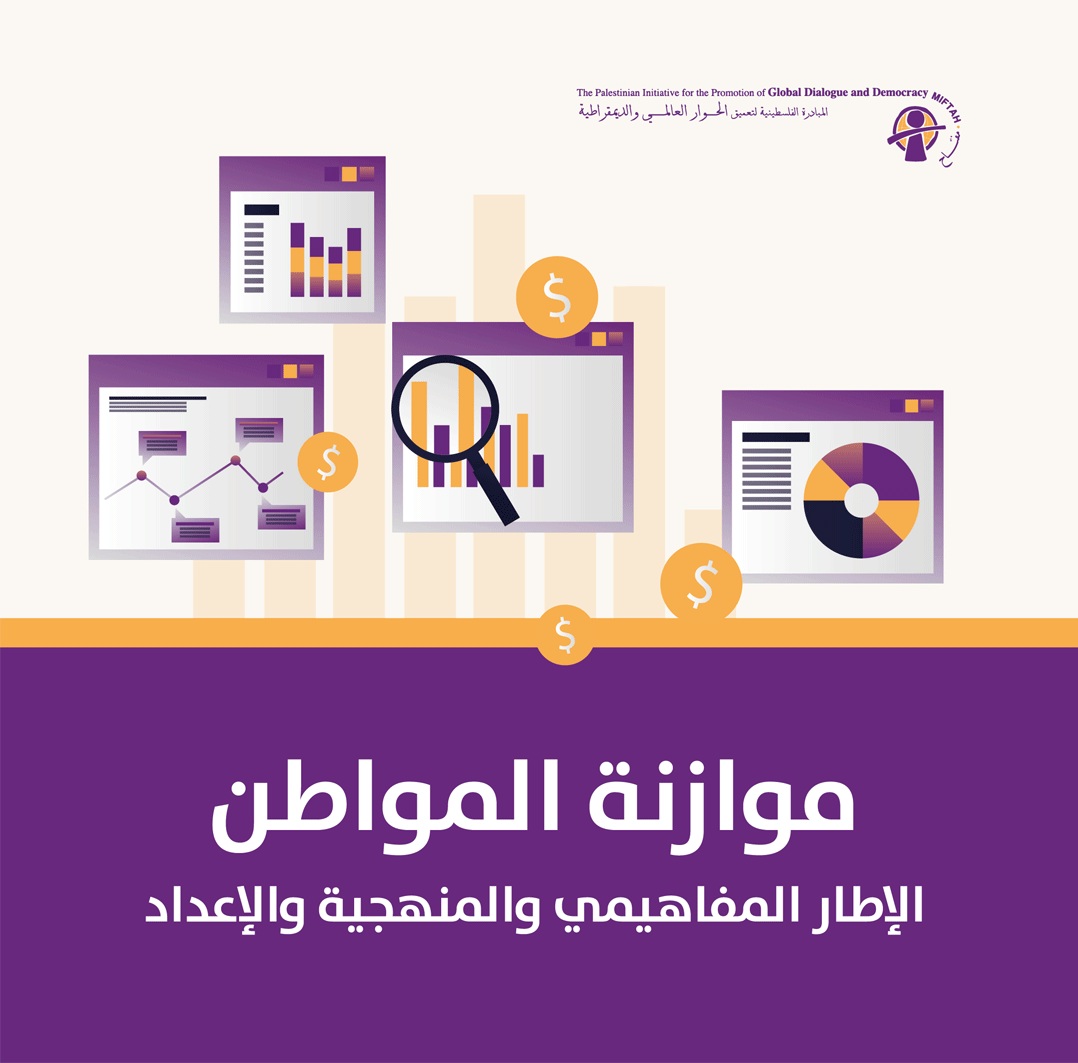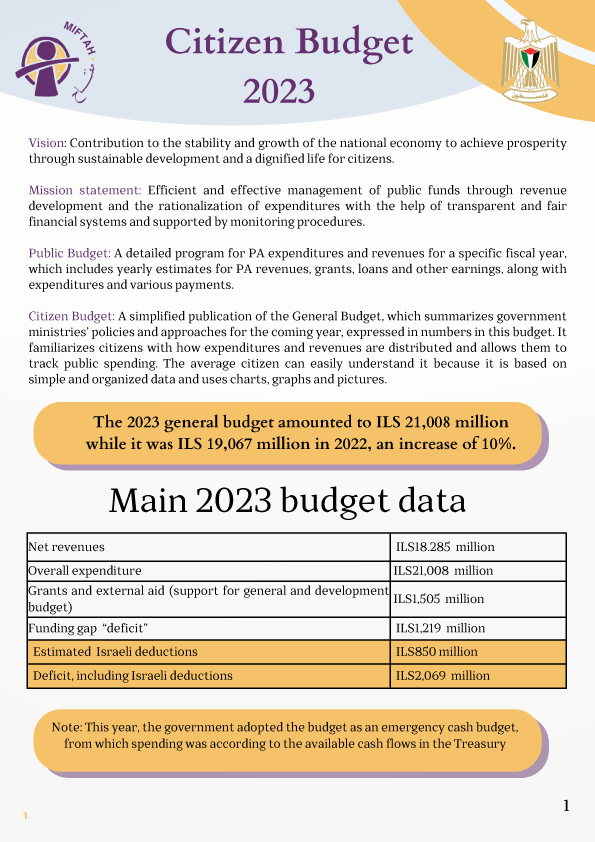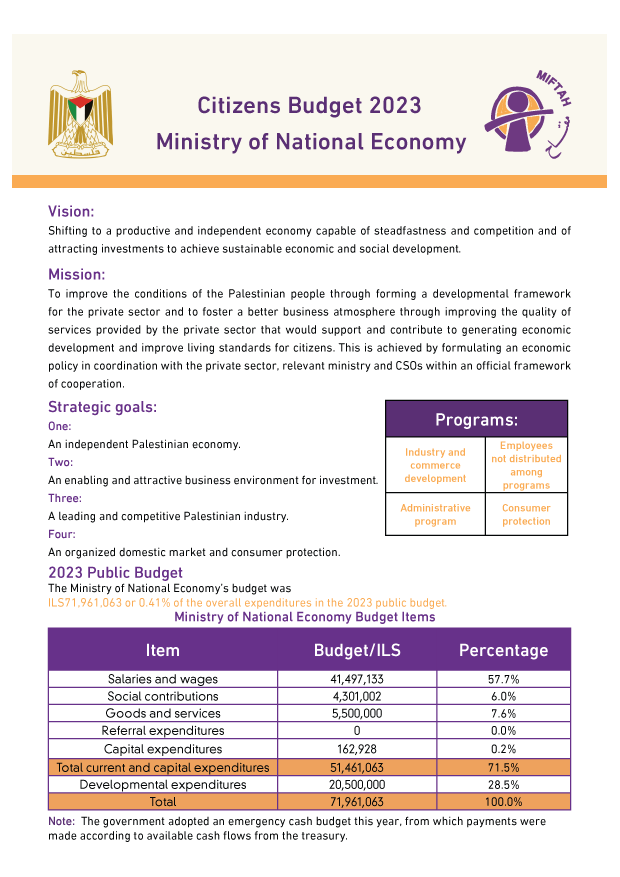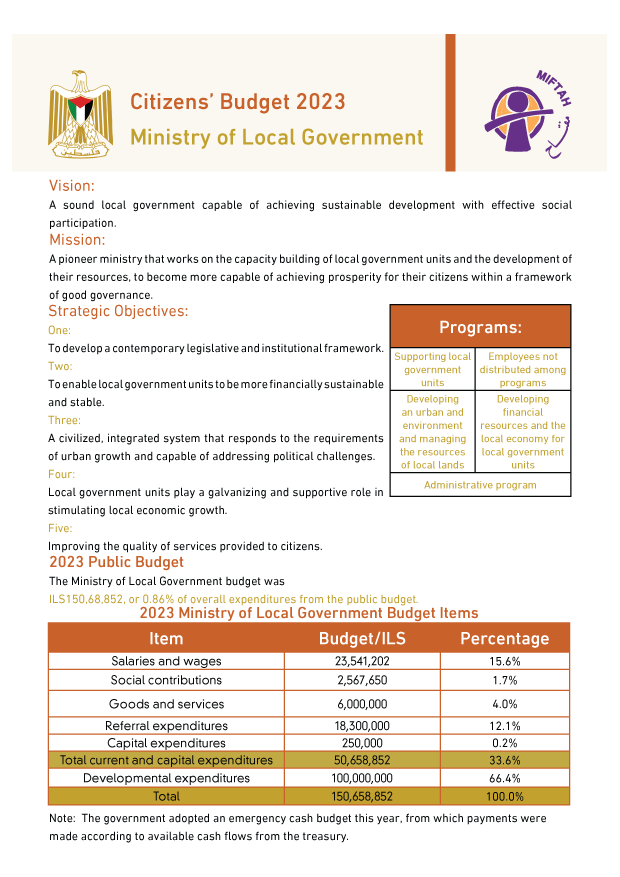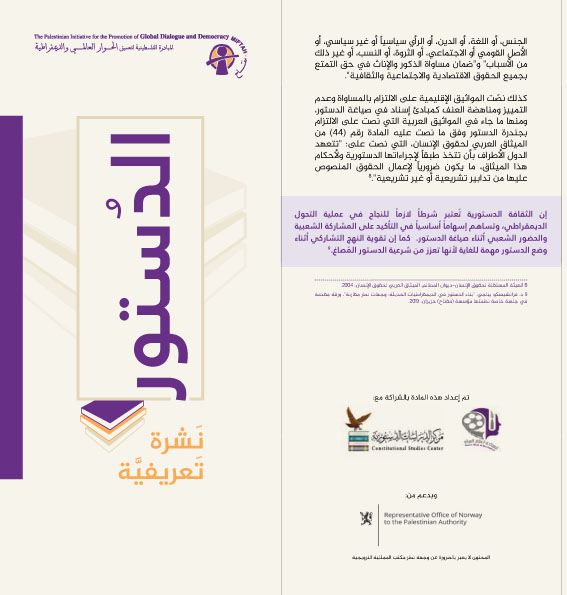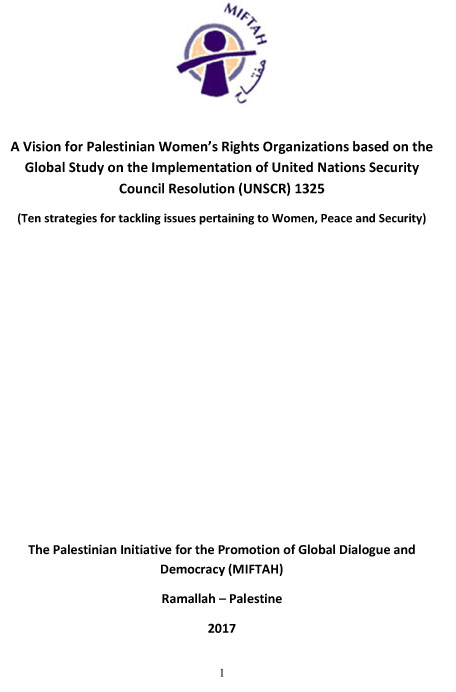MIFTAH issues statements on a continuous basis, offering up-to-date positions on key developments in Palestine. MIFTAH issues statements in both Arabic and English, and tackles key issues such as political developments, Intifada reporting, and general statements on regional developments. One of the central objectives of MIFTAH’s statements is to provide adequate positions and reactions to current affairs in the occupied Palestinian territories
Urgent Appeal to stop the ongoing Israeli Genocide and Sexual Violence in Gaza
Date posted: March 26, 2024
By MIFTAH
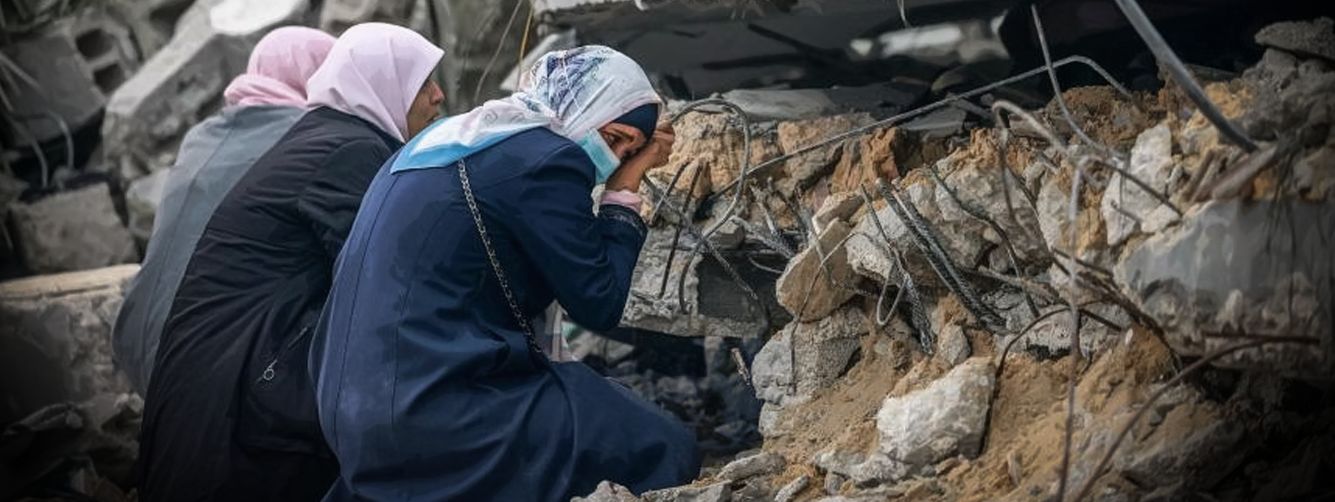
This is an urgent and repeated appeal to the world to immediately intervene, in light of the recent stories of rape and sexual violence against Palestinian women by Israeli occupation forces during Israel’s genocide in Gaza. Palestinian women are being displaced, tortured, killed and forcibly disappeared, while the world sits idle. Silence and inaction in the wake of these horrifying crimes amount to complicity.
Over the past few days, more horrifying testimonies and stories have emerged from Gaza of sadistic acts by Israeli soldiers, including torture, rape, and mass field executions at hospitals where civilians are seeking shelter, medical treatment and refuge.
Palestinian civil society and UN experts have sounded the alarm multiple times and reported cases of rape and sexual violence before and during this genocide. These reports continue to be deliberately and inexcusably ignored, including by prominent and otherwise vocal feminist organizations and figures.
The deafening silence of “Western” feminists and mainstream media in particular is deliberate and inexcusable, as opposed to their earlier outrage over Israeli allegations and misinformation, used to justify this genocide.
Many Palestinian women and girls who are survivors of rape and sexual violence are hesitant to come forward, due to the social stigma in a conservative society and the belief that Israel will not be held accountable for such crimes.
Israel is committing the most horrific war crimes, and weaponizing rape and sexual violence against Palestinians as part of its genocide in Gaza and assault on the Palestinian people as a whole, throughout all of Palestine. This is the result of decades of impunity, preferential treatment and lack of international accountability by the international community. Words are not enough to describe or stop this horror; action is needed.
We conclude this SOS appeal by reminding our sisters and allies around the world that our rights, our dignity, and our humanity are indivisible. Forsaking Palestinian victims now for political convenience would be an unforgivable betrayal to decades of sacrifice and feminist struggle.
We call for:
- The international community must employ all available tools of international accountability, including political and economic sanctions, to bring an immediate and lasting ceasefire and provision of unconditional humanitarian aid.
- States must immediately impose an arms embargo on Israel and honor their moral and legal obligations, including those pronounced in the Genocide Convention.
- States need to investigate and prosecute Israeli soldiers with dual citizenship implicated in these atrocities.
- The Special Representative of the Secretary General on Sexual Violence in Conflict must honor her mandate and launch an immediate investigation into the ongoing atrocities.
- Feminists around the world must sound the alarm globally on the unspeakable human rights violations taking place in Gaza, namely the sexual abuse and rape of Palestinian women and girls.
- Journalists and media outlets must do their due diligence in reporting on these stories through fair and unbiased coverage.
Signatories:
- American Federation of Ramallah Palestine
- Association of women’s Action
- AWMR Italia - Donne della Regione Mediterranea
- Bisan Center for Research and Development
- Community Development and Media Center
- Cultura è libertà una campagna per la Palestina
- Enjaz Foundation for development
- Filastiniyat
- Human Rights and Democracy Media Center SHAMS
- Institute of Women's Studies
- Not to forget women society
- Palestinian Center for Development and Media Freedoms (MADA)
- Palestinian Women's Action committee
- Rete Femminista Marche Molto+di194
- Rural Women Development Society
- Sinal do Vale
- Singola
- Teaching Palestine: Pedagogical Praxis and the Indivisibility of Justice
- The center for defense of liberties and civil rights “Hurryyat”
- The Palestinian Initiative for the Promotion of Global Dialogue and Democracy - MIFTAH
- The Palestinian Working Woman Society for Development-PWWSD
- The Regional Coalition for Women Human Rights Defenders in Southwest Asia and North Africa (WHRDMENA)
- Union of Palestinian Women Committees
- Wattan media network
- Women Media and Development
- Women's International League for Peace and Freedom
- رابطة المرأة العراقية
- شبكة المستقبل الديمقراطية العراقية
Where are the rights of Palestinian Women on International Women’s Day?
Date posted: March 07, 2024
By Palestinian NGO Forum to Combat Violence against Women
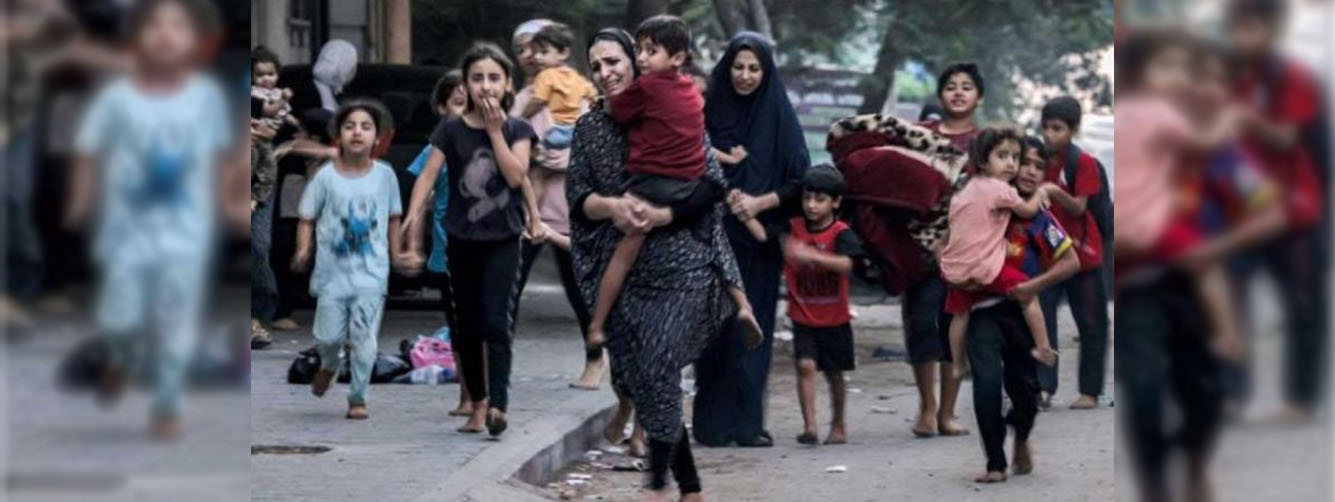
We, at the Palestinian NGO Forum to Combat Violence against Women and all Arab women’s and rights organizations raise our voices loud and clear on the eve of March 8, to say: “Stop the onslaught and crimes against women and children in Gaza. Stop the crime of genocide, the crime of starvation and forced displacement”. So far, this aggression has resulted in the killing of 31,000 Palestinians, over 70% of whom are women and children. Two women are killed every hour , in addition to many others still under the rubble. There are women whose fate is unknown, after being taken away by occupation forces.
Who will restore normalcy for us Palestinian women after these atrocities?
We have always held activities on March 8. We had a long list of rights we demanded and others we were able to achieve. However today, as the women of Gaza are being annihilated, we stand the length and breadth of our homeland and our Arab nations, angry, in a state of revolution and in deep mourning. Our demand today is to halt the genocide in the Gaza Strip and to halt the reproductive genocide against our women. We declare this day the day of Palestinian women, as they stand hungry in long queues, waiting for insufficient aid, terrified of the skies above them, filled with missiles of death. This is for the women whose bodies are exhausted, in camps for the displaced and in shelter centers, for those raped in prison and for their naked bodies stripped at checkpoints. It is for the menstruating women who cannot find sanitary products and for those with high-risk pregnancies who are starving, displaced and bombed. It is for the women whose wombs may be removed for the simplest of medical complications and those whose privacy has been violated because of overcrowded tents and displacement. It is for the mothers who could die at any moment and for all women whose Palestinianism has crucified humanity at the altar, amid deafening Arab silence, boundless American support and the complicity of several European countries.
Nevertheless, we continue to appreciate all forms of Arab and international support and solidarity with the Palestinian cause, which shows respect for our people’s dignity. Widening this solidarity will further reaffirm the justness of our cause. Hence, we await more action and movements in solidarity of our right to demand an immediate end to the genocide in the Gaza Strip, the West Bank and Jerusalem, to forge our way forward towards freedom, self-determination and the establishment of an independent and fully-sovereign Palestinian state.
Today, we Palestinian and Arab women, reaffirm the following on March 8 and every day forward:
- To put pressure on Israel to immediately halt its aggression and to hold its leaders accountable for their crimes in violation of international law, the Fourth Geneva Convention and all international laws and treaties, towards delegitimizing this occupying entity.
- To open the Rafah Crossing and all crossings to allow aid in and the wounded out for treatment
- To dismantle the land corridor linking Israel with some Arab countries supplying it with goods
Long Live Palestinian Women, who stand steadfast and resistant in the face of the Zionist aggression We speak in the voices of Gaza’s women and say:
Halt the genocide…halt the onslaught immediately!
MIFTAH calls for international accountability for heinous Israeli crimes
Date posted: February 22, 2024
By MIFTAH
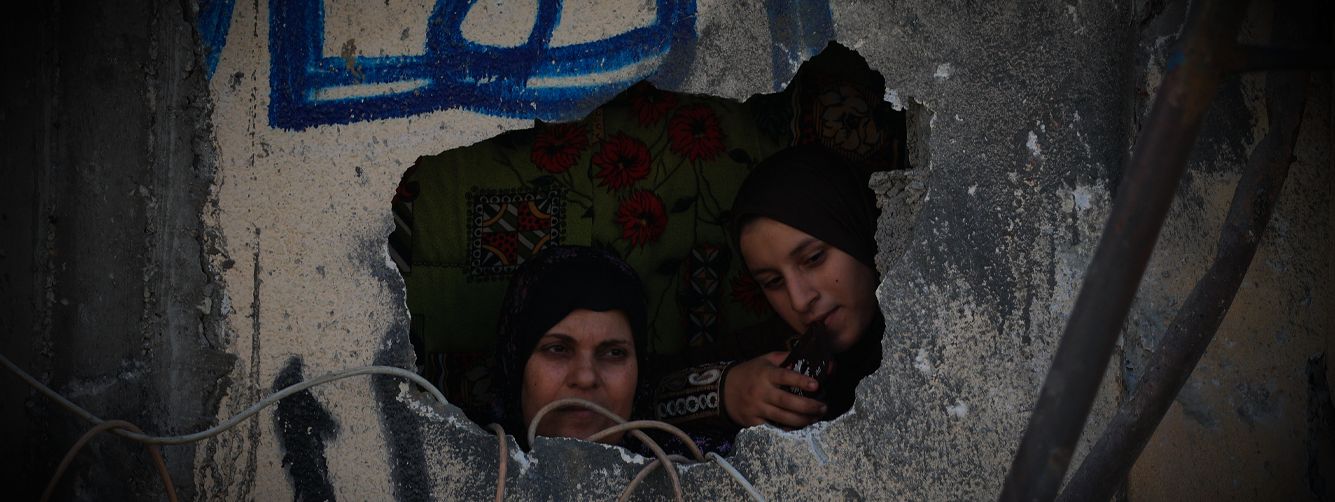
In a recent statement, nearly five months into the Israeli genocide in Gaza, several UN experts confirmed the various reports and testimonies that have been coming from Palestinian women and human rights organizations for months now. In Gaza, women have been kidnapped and forcibly disappeared and placed in dire conditions in undisclosed locations. In the occupied West Bank, released prisoners testified on the horrific realities inside Israeli prisons and the widespread torture and ill-treatment where sexual violence is used as a weapon employed against both women and men. The targeting of women and girls with such atrocious crimes is targeting the most vulnerable, in an attempt to break and degrade the society as a whole.
The inaction and failure of the international community to stop Israeli crimes, namely the ongoing genocide in Gaza, and other heinous crimes all across Palestine for decades now has emboldened Israel to act with impunity. This allows Israel to continue committing horrific crimes against Palestinian women and girls, namely rape and other forms of sexual violence and torture.
The silence of “Western” feminists has also been appalling, given their earlier outrage about unsubstantiated Israeli allegations which were used to justify and commit the ongoing genocide in Gaza.
First and foremost, we demand an immediate ceasefire and the unconditional provision of humanitarian aid. In order to put an end to such heinous crimes and impunity, we reiterate the need for an independent international investigation into all crimes, especially sexual violence, followed by international accountability for the perpetrators.
EU leadership must put an end to its double standards and complicity in Israel’s crimes against the Palestinian people
Date posted: October 16, 2023
By MIFTAH
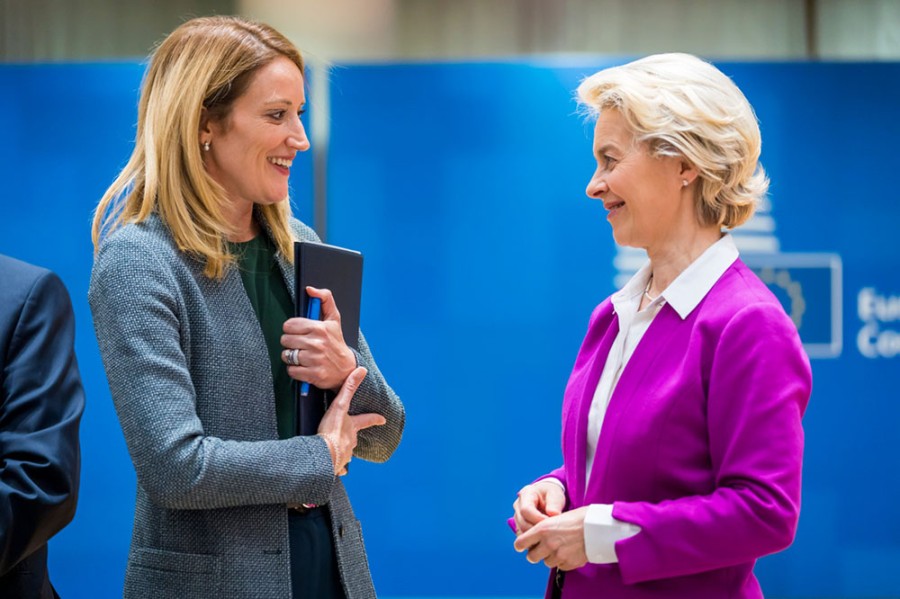
Palestinian civil society organizations urgently call on the President of the European Commission, Ursula von Der Leyen, and the President of the European Parliament, Roberta Metsola, and the European Union’s (EU) leadership to demand Israel to comply with its obligations under international law, to stop its deliberate targeted attacks on civilians and civilian infrastructure in Gaza, including with white phosphorus, to end all forms of collective punishment, to lift the 16-year-long illegal closure and blockade on Gaza, and to rescind the evacuation orders to over one million Palestinians. As a bare minimum, the EU must pressure Israel to facilitate the free passage of humanitarian consignments into Gaza for the immediate delivery of basic supplies necessary for the survival of the population, including food, water and medicine. The EU’s double standards and support of Israeli crimes against the Palestinian people must end now.
On 7 October 2023, Israel launched a full-fledged military offensive on the Gaza Strip, aimed at erasing and reducing the territory to rubble. Under international humanitarian law, “the only legitimate object which States should endeavor to accomplish during war is to weaken the military forces of the enemy”. In pursuing this aim, “the right of the Parties to the conflict to choose methods or means of warfare is not unlimited”.
The resounding silence of the EU leadership on Israeli atrocities committed in Gaza and their blind support for Israel signals that the EU is green-lighting, enabling and encouraging Israel’s military actions, which already may amount to war crimes, crimes against humanity, and incitement to commit genocide.
During a meeting of the Israeli government held on Saturday, 7th of October 2023, May Golan, Israel’s Minister for the Advancement of the Status of Women, announced that: “All of Gaza’s infrastructures must be destroyed to its foundation and their electricity cut off immediately. The war is not against Hamas but against the state of Gaza.” Later that evening, Israeli Prime Minister Netanyahu declared: “I say to the residents of Gaza: get out of there now, because we will act everywhere and with all the strength.”
These statements unequivocally underlie the intention—turned into action—to carpet bomb Gaza, one of the most densely populated areas in the world, treating the entirety of the territory as one single military objective in breach of sacrosanct principles of international humanitarian law. Palestinian civilians, including one million children, are trapped in Gaza, with no shelter, no food, no water, no electricity, and crippled infrastructure which may collapse at any moment.
And yet, despite blatant evidence of Israel’s intention to perpetrate serious international crimes against Palestinian civilians in Gaza, the response of the EU and the majority of its Member States has been one-sided—to the point of complicity in Israel’s international crimes. An unremitting international blind eye has been turned to the 2,215 Palestinians, including at least 724 children and 458 women, killed by Israeli attacks in Gaza, and to another 8,714 wounded with various injuries, including at least 2,450 children and 1,536 women. Entire Palestinian families have been wiped out. Dozens of bodies are still under the rubble and Israel has turned Gaza from an open-air prison into an open-air morgue.
President von der Leyen shared images of the Berlaymont building, which houses the headquarters of the European Commission, lit up with the colors of the Israeli flag, while announcing her support for the right of Israel to defend itself- “today and in the days to come” and that “[t]he European Union stands with Israel”. At the time of writing, President von der Leyen has not written a single statement calling on Israel to comply with its international legal obligations or denouncing the blatant international crimes committed by Israel in Gaza. Similar unilateral support was shown by the President of the European Parliament, Roberta Metsola and by several EU Member States.
On 9 October 2023, Yoav Gallant, Israel’s Minister of Defense, stated: "We are imposing a complete siege on [Gaza]. No electricity, no food, no water, no fuel – everything is closed. We are fighting human animals, and we act accordingly”. This statement, which includes genocidal language dehumanizing the Palestinian people as “human animals”, should put the international community on notice of Israel’s incitement to commit acts of genocide, and trigger a strong EU response in terms of its international law duty to prevent.
On 19 October 2022, while addressing the European Parliament, von der Leyen said: “Russia’s attacks against civilian infrastructure, especially electricity, are war crimes. Targeted attacks on civilian infrastructure, with the clear aim of cutting off men, women, children of water, electricity and heating with winter coming—these are acts of pure terror. And we have to call it as such”. No similar declarations were made with respect to Israel’s cutting off electricity, food, water, fuel, and medicine to Gaza. This stark disparity underscores the European leadership’s shameful double standards, which seemingly regards Palestinian lives as second-class, entrenching the apartheid reality.
On 13 October 2023—the same day Israel demanded over one million civilians in northern Gaza evacuate their homes towards areas south of Wadi Gaza—Ursula von der Leyen and Roberta Metsola met with the Israeli leadership. As thousands of Palestinians were forced to leave their homes, in what is the largest forced displacement since the 1948 Nakba, the EU leadership were photographed shaking hands with Israeli President, Isaac Herzog.
We recall that earlier this year, Ursula von der Leyen celebrated Israel’s independence day using racist tropes, denying the Palestinian Nakba, the mass ethnic cleansing of Palestinians which paved the foundation for the State of Israel. Yet again, as a present-day Nakba unfolds before our eyes, President von der Leyen is not just ignoring it, but facilitating it through her statements and presence in the region.
For decades, our organizations have called on the EU to impose sanctions against Israel, pursuant to the EU Global Human Rights Sanctions Regime, for its for its accumulating crime against Palestinians, including wilful killing, arbitrary mass arrests, administrative detentions without due process, property appropriation, destruction, forcible transfer, settler transfer in, collective punishment, persecution, and apartheid amongst others. All our calls remain unheeded. Yet, less than 48 hours after the beginning of Israel’s onslaught in Gaza, EU Commissioner Varhelyi unilaterally and arbitrarily announced that the European Commission intended to cut its aid to the Palestinians living under Israeli military occupation in the Gaza Strip and the West Bank, including East Jerusalem. This statement was later retracted by HRVP Borrell. However, other EU Member States have individually decided to cut, review, or suspend aid—including Germany, Sweden, Denmark, and Austria.
We demand that the President of the European Commission, Ursula von Der Leyen, and the President of the European Parliament, Roberta Metsola, fully denounce Israel’s indiscriminate military reprisals against Palestinian civilians and civilian objects in Gaza, and intervene to protect the Palestinian people against Israel’s incitement to genocide.
European leaders must firmly pressure Israel, the Occupying Power, to respect its obligations under international law, including ensuring the vital supply of water, gas, fuel, electricity and basic supplies to Palestinians in Gaza, and to cease any attack on civilians and civilian facilities. European leaders also have a duty to hold Israel accountable for its violations of international law and collective punishment against civilians, including by publicly and unconditionally supporting the current investigation carried out by the Prosecutor of the International Criminal Court.
For violence to end, European leaders must address and eradicate the root causes of the ongoing violence, namely, Israel’s seven-decade long settler-colonial enterprise and oppression of the Palestinian people. The Israeli military must fully, unconditionally, and immediately withdraw from the occupied Palestinian territory, as mandated under numerous UN Security Council and UN General Assembly resolutions. The EU must intervene to ensure that Israel dismantles its discriminatory apartheid regime, including by rescinding all discriminatory laws and facilitating the right of return and to self-determination of the Palestinian people.
Signatories:
- Al Mezan Center for Human Rights
- The Palestinian Institute for Public Diplomacy (PIPD)
- The BDS (Boycotts, Divestment, Sanction) movement
- Bisan Center for Research and Development
- The Palestinian Initiative for the Promotion of Global Dialogue and Democracy - MIFTAH
- Al-Haq, Law in the Service of Man
- Union of Agricultural Work Committees (UAWC)
- Health Work Committees (HWC)
- Addameer Prisoner Support and Human Rights Association
- Defense for Children International – Palestine
- The Palestinian Centre for Human Rights
- The Jerusalem Human Rights Consortium:
- The Jerusalem Legal Aid and Human Rights Centre (JLAC)
- The Land Research Centre (LRC)
- The Society of Saint Yves
- The Women’s Centre for Legal Aid and Counselling (WCLAC)
MIFTAH holds side event highlighting situation of Palestinian women under Israeli apartheid and settler-colonialism
Date posted: July 04, 2023
By MIFTAH
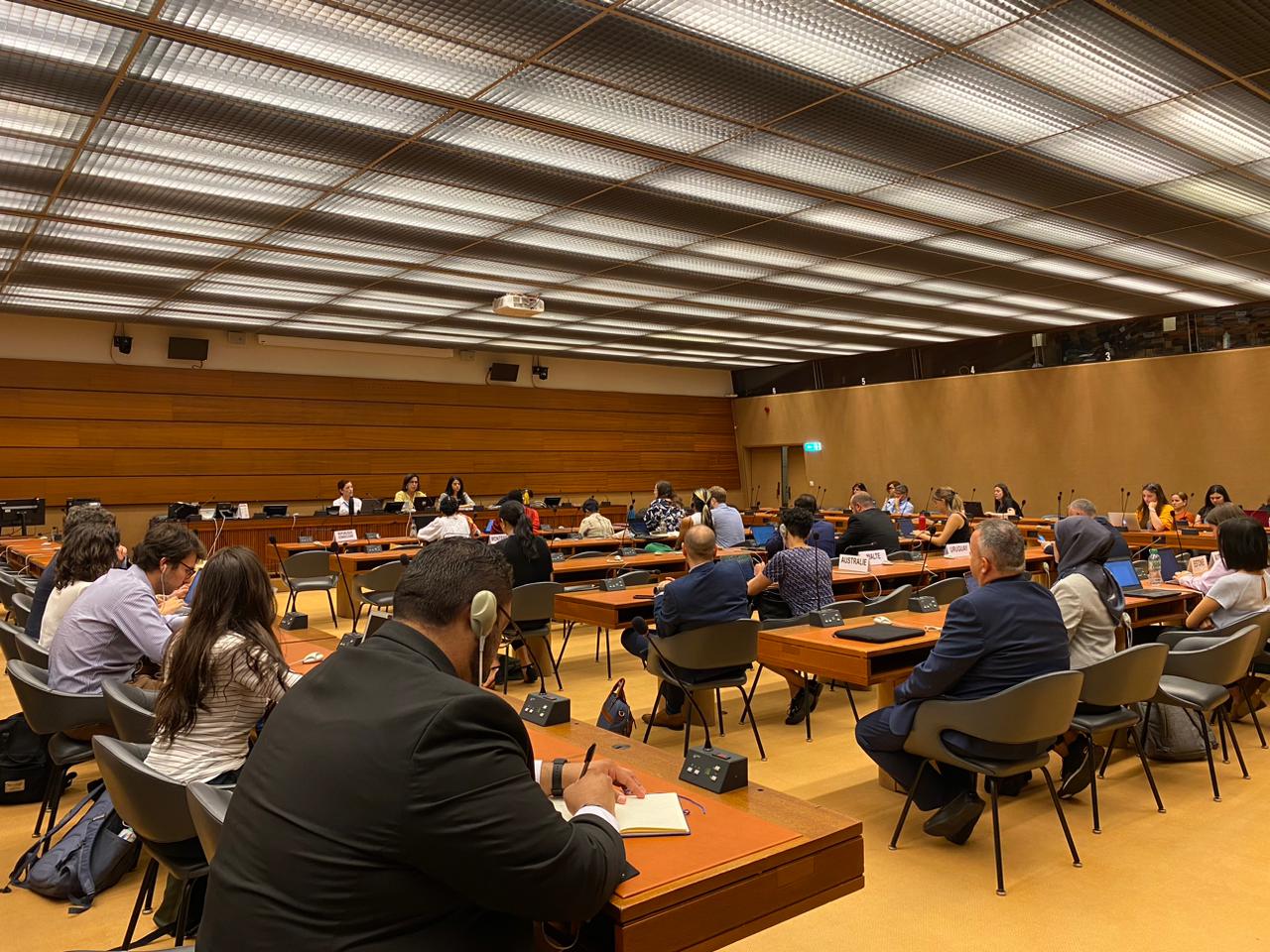
On June 19th, 2023, the Palestinian Initiative for the Promotion of Global Dialogue and Democracy – MIFTAH held a side event as part of the 53rd session of the United Nations Human Rights Council, highlighting the situation of Palestinian women and girls across historical Palestine and in exile under Israel’s military occupation, apartheid regime and settler-colonial project.
MIFTAH’s Joharah Baker briefed the audience on the varying Israeli crimes and human rights violations committed against Palestinian women and girls based on the imposed geographical fragmentation. In the occupied West Bank, Joharah discussed MIFTAH’s documentation of Israeli state-sponsored settler terrorism, systematic home demolitions and army night raids and their impact on women physically and psychologically. Regarding occupied Jerusalem, she explained that Palestinian Jerusalemite women continue to be isolated from their natural surroundings due to the annexation wall and numerous military checkpoints, talking about her own experience in this regard.
While discussing the situation of Palestinian women in the besieged Gaza Strip, Joharah mentioned that in addition to the dire conditions following a 16-year-long suffocating land, air, and sea blockade and closure, frequent Israeli aggressions on Gaza have made it almost impossible for women to seek proper medical healthcare inside Gaza or to seek medical referrals outside the besieged Strip, particularly female cancer patients as recently documented by MIFTAH.
MIFTAH also highlighted that deliberate Israeli police negligence in Palestinian areas inside Israel has led to a record increase in femicide, leading to the killing of 12 Palestinian last year alone. Palestinians there also face over 65 discriminatory laws, namely the family reunification law, which prevents mothers, wives and daughters from living with their families under one roof, leading to a denial of rights.
The speaker also explained that Palestinian women refugees residing in overcrowded camps and still denied their right of return, are denied access to basic services like access to water and electricity, which in turn leads to increased gender-based violence.
Joharah also touched on MIFTAH’s efforts domestically to push for the Family Protection Bill to be passed into law, in order to guarantee rights and protection for Palestinian women and girls, citing the predominantly patriarchal society in Palestine as a major source of discrimination against them.
The second panelist, Carrie Shelver from the Sexual Rights Initiative, talked about the importance of intersectional solidarity when it comes to Palestine and gender-related struggles. She also emphasized the need to have a progressive feminist discourse using an anti-colonial lens and including input from the global South. Finally, she discussed Israeli pinkwashing attempts that aim to obscure its crimes by promoting itself as a protector of women and depicting Palestinians as regressive.
Finally, Palestinian activist Nada Awad informed the audience of the responsibility and obligations of the international community to end Israel’s impunity and hold it accountable for its persistent crimes and human rights violations. She also laid out the various available tools and mechanisms for accountability, including the Commission of Inquiry, UN Special Rapporteurs, the International Criminal Court and the Convention of Ending All Forms of Discrimination Against Women (CEDAW).
The panelists concluded the event with a set of recommendations for the international community:
- Ending Israel’s impunity and holding it accountable with effective and concrete steps
- Political and Financial support for the UN Commission of Inquiry in light of baseless attacks
- Support for the UN Special Rapporteur to the oPt in light of smear campaigns
- Support the International Criminal Court investigation into Israeli war crimes
- Support for the upcoming ICJ advisory opinion on the illegality of Israel’s occupation
Palestinian Civil Society denounce EU Commission statement
Date posted: April 29, 2023
By MIFTAH
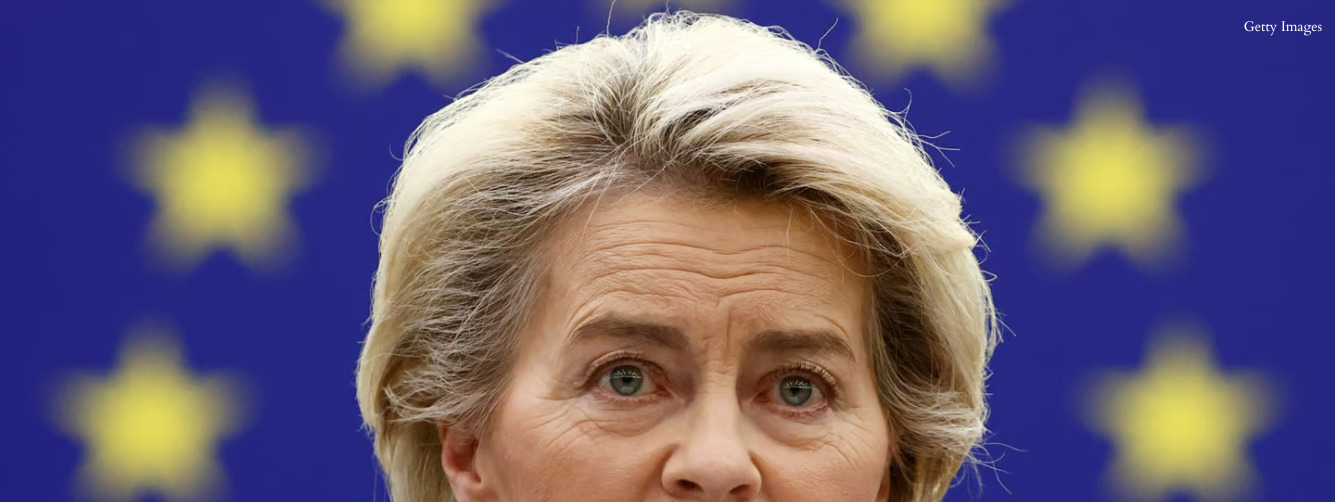
The undersigned Palestinian civil society organizations vehemently denounce and reject the shameful statement made by the EU Commission President, in which she celebrated Israel’s “Independence” day by using racist anti-Palestinian tropes and denying Palestinian history and the atrocities of the Nakba. These remarks depart from basic political and diplomatic principles and shamelessly favor the occupying power, which engages in persecution, aggression, and state terrorism against the Palestinian people.
In her speech, Ursula von der Leyen claimed that Israel has made “the desert bloom”, utilizing a colonial remark that greenwashes Israel’s settler-colonial project, and its displacement of the indigenous Palestinian people and the illegal confiscation of their land. We further reject Ms. von der Leyen’s use of biblical references that align with the Israeli occupier’s narrative that erases the Palestinian people and denies their deep roots in the land and their inalienable right to self-determination. This forms the foundation for the racist so-called “Nation State Law” that Israel is now using to entrench colonization and complete annexation of the Occupied Palestinian Territory, including Jerusalem.
The horrific events of the Palestinian Nakba which paved the way for the foundation of Israel; including displacing over 750,000 Palestinians and rendering them refugees to this day, razing hundreds of Palestinian villages and towns, and committing dozens of massacres, continue to manifest today through different ways yet with the same overall aim of displacing the indigenous Palestinian people and replacing them with Jewish Israelis across historical Palestine through ethnic cleansing.
The European Union’s failure to hold Israel accountable for its countless crimes and human rights violations, including the crime against humanity of apartheid, fuels the culture of impunity that Israel enjoys as it escalates its aggression against the Palestinian people and their land, especially in light of the new extremist Israeli government. Instead of contributing to ending Israeli violations and delivering long-awaited justice to Palestine, the EU continues to reward Israel, the occupying power, with more political, economic, and technological support and cooperation.
We urge the European Union to assume its responsibility, by refraining from such inflammatory and objectionable language as well as from employing double standards in dealing with issues related to the legitimate rights of the Palestinian people, as guaranteed by all relevant international laws and agreements. We call on elected European officials to muster the courage and political will to pressure Israel into abiding by international law by holding it accountable with concrete and effective measures that align with existing European Union laws and international obligations and principles.
Finally, we thank our friends and allies across Europe for speaking out and rejecting this overt anti-Palestinian racism and urge them to hold their officials accountable. Like all other forms of hate and discrimination, anti-Palestinianism must not be tolerated.
Signatories:
- Palestinian Human Rights Organizations Council (PHROC)
- The Palestinian NGOs Network (PNGO)
- AMAN Coalition
- Al-Haq, Law in the service of man
- The Palestinian Initiative for the Promotion of Global Dialogue and Democracy – MIFTAH
- Palestinian Centre for Human Rights, Gaza (PCHR)
- Al-Mezan Center for Human Rights
- Abdel ـ Shafi Community Health Association (ACHA)
- Adam association for the development of family society
- Addameer – Prisoner Support and Human Rights Association
- AFKAR Organization for Educational and Cultural Development
- Agricultural Development Society
- Aisha Association for Woman & Child Protection
- Al Adham for Development
- Al Ataa' Charitable Society
- Al Awda Health and Community Association
- Al Nahda Association for Development and Growth (NADG)
- Al Najda Social Association
- AL RAAFA ASSOCIATION FOR SOCIALLY DEVELOPMENT & HANDICAPPED CARE
- Al Sattar Garbee Association for Developing Countryside and Farmer
- AL-Foukhary Association For Development and Culture
- Almanal Society for Developing the Rural Women
- Alnajda Developmental Forum
- Alrowwad Cultural and Arts Society
- Altaghreed Association For Culture And Development
- Al-Tawasol Forum Society
- Alternatives Forum - Palestine
- Amwaj Association for Community Development and Improvement
- Arab center for Agricultural Development (ACAD) /Ramallah – Gaza
- Arab World Democracy and Electoral Monitor (Al Marsad)
- Association for Visually Impaired Graduate League
- Basma Society for Culture and Arts
- Beit Lahia Youth Center Association
- Bisan Center for Research and Development
- Brilliant Tomorrow for Homes Sons Society
- Center for Defense of Liberties & Civil Rights “Hurryyat”
- Center of Women's Legal Research, Counseling and Protection
- Central Blood Bank Society
- Centre for Culture and Development
- Charitable Family Development Association
- Community Action Center / Al-Quds University
- Community Media Center
- Defense for Children International – Palestine
- Disability Representative Body Network
- Dr. Haidar Abdelshafi Centre for Culture and Development
- El Amal Rehabilitation Society - Rafah
- El-Braem Development Society
- Faisal Husseini Foundation
- Federation of Woman Action Committee
- Filastiniyat
- Future Association for Development and Environment
- Future Charity Association
- Gaza Community Mental Health Programme - GCMHP
- Gaza Urban & Peri-urban Agriculture Platform (GUPAP) | Gaza, Palestine
- General Union of Cultural Centers
- Ghassan Kanafani Development
- Human Rights and Democracy Media Center “SHAMS”
- Jerusalem Human Rights Consortium (JHRC)
- Jerusalem Legal Aid Center (JLAC)
- Khuzaa permaculture association center
- LABOR RESOURCES CENTER - LRC
- Land Research Center (LRC)
- Local Association For Social Services
- MA'AN Development Center
- Mabarret Palestine Society for Caring (MPC)
- Milad Association for Youth Development
- Mothers School Society
- National Center for Rural Development Association
- National Society for Rehabilitation
- Nawa for Culture and Arts Association
- Palestine Amputee Football Association
- Palestinian Agricultural Development Association
- Palestinian Agricultural Relief Committees (PARC)
- Palestinian Center of Organic Agriculture
- Palestinian Crescent Society for Relief and Development
- Palestinian Developmental Women Studies Association
- Palestinian Farmers’ Union
- Palestinian Health Work Committees (HWC)
- Palestinian Human Rights Organizations Council (PHROC)
- Palestinian Medical Relief Society (PMRS)
- Palestinian Non–Governmental Organization against Domestic Violence against Women (Al Muntada)
- Palestinian Social Forum (PSF)
- Palestinian Youth Union
- PALTEAM Association for Community Development
- Public Aid Society - Gaza
- Remedial Education Center - REC
- Rural Women Development Society (RWDS)
- Science and Culture Center
- Teacher Creativity Center
- The Assembly Benevolent Of Operation
- The Civil Commission for the Independence of Judiciary and Rule of Law “Istqlal”
- The Culture and Free Thought Association
- The Palestinian Association for Empowerment and Local Development-REFORM
- The Palestinian Center for the Independence of the Judiciary and the Legal Profession MUSAWA
- The Palestinian Centre for Human Rights, Gaza (PCHR)
- The Palestinian Development Women Studies Association
- The Palestinian Institute for Communication and Development PICD
- The Palestinian Women’s Coalition for the Implementation of UNSCR 1325
- The Palestinian Working Woman Society for Development (PWWSD)
- The Palestinian Youth Association for Leadership and Rights Activation- PYALARA
- The Society of Women Graduates in Gaza Strip
- The Women’s Studies Centre
- Union of Agricultural Work Committees (UAWC)
- Union of Health Care Committees (UHCC)
- Union of Palestinian Women Committees (UPWC)
- Wasel Center for Youth Development
- WEFAQ Society for Women and Child Care
- Women Media and Development
- Women’s Affairs Technical Committee
- Women’s Studies Centre
- Women's Action Association for Rehabilitation Women & the Child
- Women's Affairs Center /Gaza
- Women's Center for Legal Aid and Counselling (WCLAC)
- Youth Development Association
- YWCA of Palestine
- Zeina Women's Society
172 civil and human rights organizations urge the international community Condemning the racist Israeli occupation crimes against Palestinian children and demanding their release
Date posted: November 24, 2022
By civil and human rights organizations
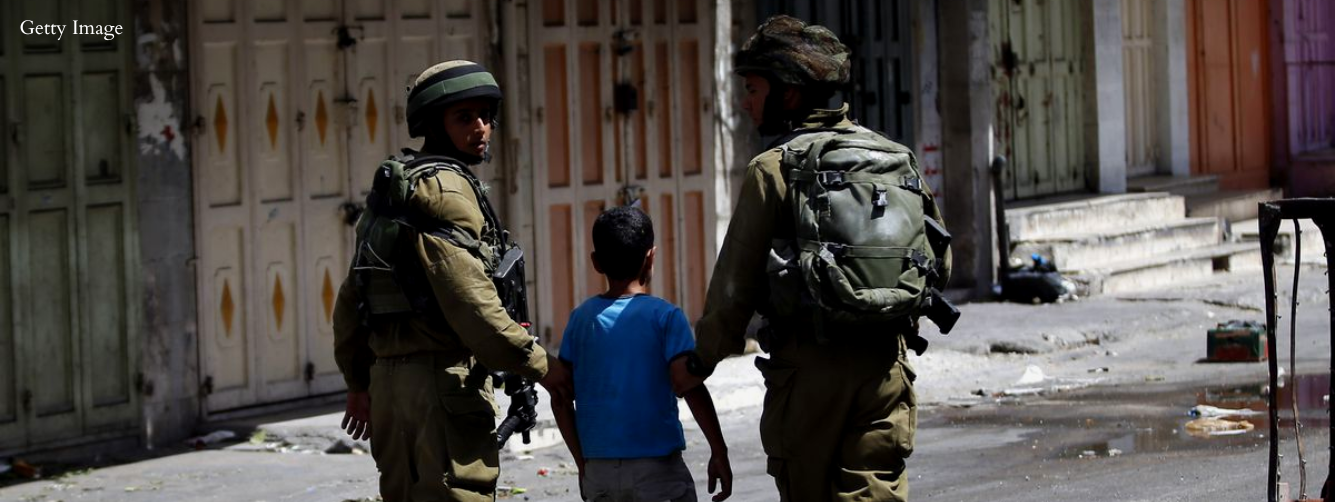
The Israelian crimes against Palestinian children are condemned. The Israeli occupation authorities continue their violations against Palestinian children represented in arresting and abusing them during the arrest process without respecting the child’s protection treaties and the Convention on the Rights of the Child . These crimes are carried out under displacement, murder and intimidation. the highest percentage was after April/October (119), and at the end of October there are 160 children distributed in Megiddo Ofer Damon prison of them About (4) children in administrative detention and (12) children under (12) years old are also detained . According to the testimonies provided by the prisoners and the reports issued by the prisoners’ institutions, they are subjected to the cruelty to which adult prisoners are subjected to torture, unfair trials and inhumane treatment that violates their basic rights and threatens their future is lost. This is against the terms of the Child Agreement ،especially Article 16, which states:
No arbitrary or unlawful interference with a child's private life, family, home, or correspondence, or any lawful prejudice to his honor or reputation.
Which also states:
“The child has the right to be protected by law from this exposure and prejudice.” The occupation does not take into account the young age of children when they are brought to court, and a special court is not formed for them, and the age of the child is set for less than (16) years based on Military Order No. (132). this is a clear violation of Article No. (1) of the Child Convention, which defines a child as “every human being under the age of eighteen.”
The Israeli occupation authorities deprive the child prisoners of the most basic rights granted to them by international conventions that they are entitled to regardless of their religion, nationality. These include the right not to be subjected to arbitrary arrest .it includes:
- The right to know the reason for the arrest.
- The right to obtain a lawyer.
- The family’s right to know the reason for the arrest, and the location of the arrest.
- The right to appear before a judge.
- The right to object and challenge the accusation.
- The right to communicate with the outside world.
- The right to humane treatment that preserves the dignity of the detained child.
Child prisoners in Israeli prisons suffer from harsh and inhumane conditions of detention that lack international standards for children's rights. The prisoners suffer from lack of food and poor quality, lack of hygiene, and the spread of insects Child prisoners are deprived of health care and appropriate medical treatment, and painkillers are usually the treatment for various types of diseases. According to the testimonies of child prisoners, the prison administration refuses to transfer patients from them to prison clinics, and if they transfer them, they are subjected to beatings, insults, and harassment, even from doctors and nurses. Likewise, there is no permanent doctor available in the prison clinic. The occupation is still procrastinating and sometimes refusing to perform surgeries on children who need immediate operations, and this is contrary to international laws that explicitly stipulate the need for medical care for prisoners. Articles (91-92) of the Fourth Geneva Convention stated: “Every prisoner must have a clinic". An event supervised by a qualified doctor, and that the detainees receive the medical care they need, as well as the installation of any medical devices necessary to maintain their health in good condition, free of charge. Free medical examinations must be conducted for the detainees at least once a month, and their purpose is to monitor the health and psychological condition, general nutrition, and hygiene, as well as the detection of infectious diseases. Israeli prisons do not comply with this.
And if we examine the sentences issued unjustly and aggressively, we find that they are high, as one child was sentenced to life imprisonment, three children were sentenced to 15 years in prison, and four other children were sentenced between 5 and 9 years, and often the verdict is accompanied by financial fines (1000-6000 shekels).
The Israeli occupation state is the only country in the world that tries children before military courts. Based on the foregoing, we, the undersigned organizations, demand:
First: The international community to put pressure on the Israeli occupation state and oblige it to implement international agreements on prisoners and detainees, especially child prisoners, and to work for their release.
Second: All international human rights organizations, especially those working in the field of children, such as UNICEF & Dcl, to launch an international campaign to shed light on the suffering of child prisoners in Israeli prisons, and to work for their release.
The signatories to the statement
- Tunisian General Labor Union
- Coordination for Maghreb Human Rights Organizations (include 26 HR organizations from Morocco, Mauretania, Algeria, Tunisia and Libya)
- The Moroccan Coalition for Human Rights Bodies (includes 23 Moroccan human rights organizations)
- Sudanese Women's Union
- The Jordan Federation of the independent Trade Unions
- Union of Palestinian Working Women's Committees
- Tunisian Coalition Against the Death Penalty
- The Human Rights Coalition to Stop the Aggression, Lift the Siege, and Build Peace in Yemen (includes 10 organizations from ten Arab countries)
- Egyptian Coalition for Child Rights (includes 100 institutions)
- The National Coalition of Civil Society Organizations in Yemen
- The Coalition for Integrity and Accountability (AMAN)/Palestine
- The Palestinian Doctors Association in Europe
- The Academic Assembly for the support of Palestine-Lebanon
- Women’s Cultural Assembly for Democracy / Iraq
- Cultural Rally for Democracy / Iraq
- NGOs Platform (Tajamoh)(includes 50 organizations)/Lebanon
- Syrian Coalition Against the Death Penalty (SCODP)
- Iraqi Coalition Against the Death Penalty
- The Iraqi Alliance for Human Rights Organizations (includes 55 organizations)
- The Arab Coalition against the Death Penalty (includes 9 coalitions in 8 countries)
- Syrian Feminist Alliance to activate Security Council Resolution 1325
- Yemeni Coalition Against the Death Penalty
- Acting for change and democracy in Algeria (ACDA)
- The Moroccan Front in Support of Palestine and Against Normalization(18 organizations(
- Ibn Rushd Association for Development and Democracy / Iraq
- The Jordan Society for Human Rights
- Bahrain Human Rights Society
- Baraem Association for Social Work/Lebanon
- The Palestinian National Heritage Society in Lebanon
- Civil Solidarity Association / Tunis
- Lebanese Palestinian Communication Association
- Tunisian Association for the Defense of Individual Liberties
- Tunisian Association of Democratic Women
- l'Association des tunisiens en France
- Alrowwad Cultural and Arts Society- Aida refugee camp-Bethlehem -Palestine
- Oak Society/Jordan
- Working Women's Association/Jordan
- Association of the International Cultural Network for Palestine
- Palestinian Diaspora Association / Sweden
- Palestinian Martyr Association / Lebanon
- Palestinian Society for Social Communication Ajyal/Lebanon
- Al-Quds Cultural and Social Association / Lebanon
- Lebanese Association for Boycott Support
- Lebanese Association of Democratic Jurists
- Palestinian Working Woman Society for Development PWWSD”
- Women’s Association for Women’s Development and Development/ Yemen
- Association for the Development Center for Palestinian Women / Palestine
- Moroccan Association in France
- Moroccan Association for Human Rights
- The Moroccan Association for Women Progressive
- Moroccan Association for the Elimination of Violence against Women
- University Cultural Forum Association / Lebanon
- Association of the Economic and Social Forum for Women / Jordan
- Mauritanian Association for the Promotion of Rights
- Mauritanian Association for Human Rights
- Arab Women Organization-Jordan
- I am a Human Soceity for Rights of Persons with Disability
- Rural Women Development Association / Palestine
- Jothor Society for Human Rights-Jordan
- Citizenship Bridges Association/Tunisia
- Rasid Association for Human Rights/ Lebanon
- Roaa Women Association-Jordan
- Women's Network Society for Women Support/ Jordan
- Chamoua Association for Equality/Morocco
- Association of the Jordanian Women's Solidarity Institute
- Orient Forum Association for Freedom and Peace
- Amman Forum for Human Rights Association/Jordan
- Women's Association for Jerusalem / Lebanon
- Protecting human rights defenders around the Arab world/ France
- The International Campaign to End the Siege on Yemen
- Boycott campaign / Palestine
- Tunisian League for Tolerance
- The Algerian League for Defense Human Rights
- Association of Women Heads of Families from Mauritania
- Iraqi League for Human Rights Trainers
- Freedom Pioneers for Integrity and Human Rights Training / Jordan
- The Jordanian Network for Human Rights (includes 11 human rights organizations)
- The Moroccan Democratic Network for Solidarity with the Peoples(includes 38 Commission)
- The Arab Human Rights Trainers Network
- Women’s Peace and Security Network (Yemen)
- Volunteers Network for Development and Human Rights/Egypt
- The Syrian National Network for Civil Peace and Community Safety.
- Moroccan space for human rights
- Filastiniyat / Palestine
- Federation of Tunisians for citizenship between the two banks
- The Syrian Federation of Human Rights Organizations and Bodies
- Moroccan Federation for Human Rights
- Committees for the Defense of Democratic Freedoms and Human Rights in Syria (LDH)
- Work committees in the camps / Lebanon
- Committee on Public Liberties and Human Rights / Palestinian Bar Association
- Syrian Medical Committee/Paris
- Arab Commission for Human Rights
- The Kurdish Committee for Human Rights in Syria (Al Rased).
- The Committee for the Respect of Freedoms and Human Rights in Tunisia
- European initiative for the rights of Palestinian prisoners / the Netherlands
- Palestinian Initiative to Deepen Global Dialogue and Democracy-MIFTAH
- Egyptian Women Lawyers Initiative
- World Council for Rights and Freedoms
- Council on International Relations / Palestine
- Lawyers for Justice /Yemen
- Lawyers Without Borders/Yemen
- Democratic School/Yemen
- International Observatory for Documentation of Human Rights Violations/ Argentina
- The Arab Observatory for Human Rights and Citizenship/ Lebanon
- French Observatory for Human Rights/Paris
- Human Rights & Democracy Media Center “SHAMS"/Palestine
- Africa Center for Studies and Media Services / Mauritania
- Bahrain Center Against Torture / Bahrain
- Al-Badeel Center for Studies and Research/Jordan
- Arab House Center for Research and Studies/Egypt
- Women’s Studies Center/ Palestine
- Center for the Defense of Freedoms and Civil Rights "Hurriyat" / Palestine
- The Palestinian Center for the Independence of the Judiciary and Advocates "Musawa"
- Palestinian Centre for Peace and Democracy PCPD
- Phenix Center for Economics & Informatics Studies/Jordan
- Center for International Humanitarian Law and Human Rights/Yemen
- Jerusalem Center for Legal Aid and Human Rights/Palestine
- Strategic Initiative Center Palestine/Malaysia
- Women's Center for Legal Aid and Counselling/Palestine
- The Dutch Yemeni Center for the Defense of Rights and Freedoms
- Jothor Center for Human Rights/Jordan
- Human Rights Center for Memory and Archives/Morocco
- Center for the Protection and Freedom of Journalists/ Jordan
- Damascus Center for Theoretical and Civil Studies
- Adalah Center for Human Rights Studies/Jordan
- Amman Center for Human Rights Studies (ACHRS)
- Eye of Humanity Center for Rights and Development / Yemen
- Metro Center for Defending the Rights of Journalists/ Iraq
- Scandinavian Institute of Human Rights/Geneva
- International Institute for Peace, Justice and Human Rights/Geneva
- Dialogue Forum for Development and Human Rights / Egypt
- The Palestinian Democratic Forum in Europe
- The Cultural and Legal Youth Forum at the Arab Observatory / Lebanon
- Houran Forum for Citizenship/Syria
- Economic and Social Forum for Women/Jordan
- Bahrain Forum for Human Rights
- Renewal Forum for Citizen and Democratic Thought / Tunisia
- Sisters Arab Forum for Human Rights (Yemen)
- Sudanese National Civil Forum(includes 54 civil society organizations) / Sudan
- Moroccan Forum for Truth and Equity
- Organization of Persons with Dual Disabilities/Yemen
- African Organization for Human Rights Monitoring/Morocco
- Libyan Academic Organization
- The Tunisian Organization against Torture
- Gender Studies and Information Organization / Iraq
- Organization for the Defense of Prisoners of Conscience in Syria -Rawanga
- International Organization for Human Rights and International Law / Norway
- The Arab Organization for Human Rights in Syria
- The Kurdish Organization for Human Rights in Syria (DAD)
- Egyptian Organization for Human Rights
- National Organization for Human Rights in Syria
- Yemeni Organization for Dialogue of Religions and Cultures
- Yemeni Organization for Humanitarian Action / Yemen
- Freedom House Organization to defend human rights and combat slavery and its remnants/ Mauritania
- ORGANIZATION FOR FREEDOM OF MEDIAS AND EXPRESSION OFME- HATIM / MOROCCO
- Human Rights Organization in Syria- Maf
- Desert Youth Organization for Development and Human Rights / Libya
- Freedom Martyr Nabil Barakati Organization: Memory and Wafa/ Tunisia
- Yemeni Organization for Defense Rights and Democratic Freedoms/Yemen
- Al-Haq Foundation for Freedom of Opinion and Expression and Human Rights/Egypt
- The Middle East Foundation for Development and Human Rights (Yemen)
- Addameer Foundation for Human Rights/ Palestine
- Addameer Foundation for Prisoners Care and Human Rights /Palestine
- The Arab Foundation to support Civil Society and Human Rights/Egypt
- The Egyptian Foundation for the Advancement of Childhood Conditions/Egypt
- National Foundation to Combat Human Trafficking/Yemen
- Youth Foundation for Community Development / Yemen
- Future Partners Foundation for Development and Human Rights - Yemen
- Mada Foundation for Human Rights / Iraq
- The Coordination Committee for Yemeni NGOs for Children's Rights / Yemen
- Moroccan Commission for Human Rights
- The Moroccan Commission for the Support of the Nation's Issue
Zero tolerance for violence against women ... #SolidarityAcrossBorders
Date posted: July 06, 2022
By MIFTAH
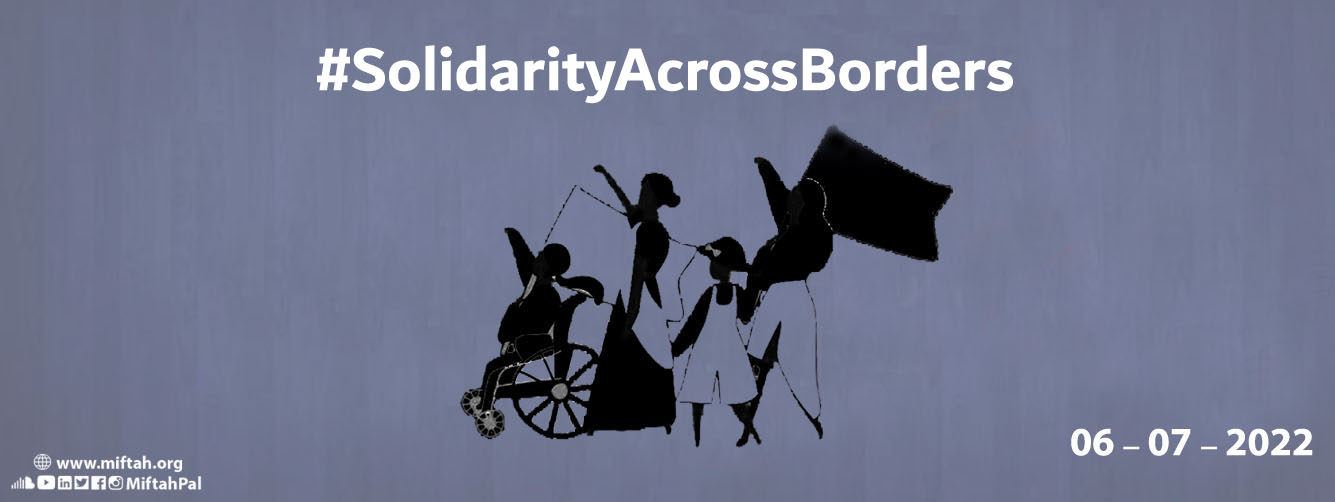
In light of the escalating rate of femicide in the Arab world, which recently claimed the lives of university student Naira Ashraf and TV broadcaster Shaima Gamal in Egypt, Iman Arsheed from Jordan, Palestinian engineer in the UAE Lubna Mansour, among many others, the Palestinian Initiative for the Promotion of Global Dialogue and Democracy "MIFTAH" announces its unwavering support for all feminist movements, coalitions and activities calling for a general strike by women across the Arab world on 6/7/2022 and calls on Palestinian women to participate and express their opinion in rejecting violence committed against women.
For decades, Palestinian women have been subjected to the most heinous types of crimes and violations under Israel’s regime of settler-colonialism, occupation and apartheid. They continue to be exposed to various risks due to the ongoing Israeli policies of demolishing their homes and displacing their families, nightly home raids that terrorize them and their children, and willful killings of women at Israeli military checkpoints.
Despite this large-scale injustice inflicted daily, Palestinian women are not exempted from the patriarchal culture and its violent and oppressive manifestations that are prevalent in our society and across the world. It treats them as second-class citizens, de-prioritizes their needs and legitimizes various forms of discrimination and violence against them.
Since the beginning of 2022, six Palestinian women have been murdered inside Israel, followed by the killing of two Palestinian girls in Nablus and Tubas. The perpetrator often evades accountability, as the local society provides cover and legitimizes such crimes. Every year, Palestinian women renew their call on decision-makers to put an end to the horrific series of killings against them. However, many laws that guarantee the protection of the dignity and rights of Palestinian women and their families are still shelved by the government under the pretext of the public mood rejecting them.
Here we are today, joining our voices to all feminist voices, along with all the oppressed groups in our Arab societies, to say enough is enough. It is time for us to stand united against this great injustice, and to combat all practices that rob Arab women of the right to life, devalue them, or justify their oppression. We reject all inherited cultural traits that perpetuate patriarchal authority to control the fate and decisions of Arab women and limit their independence and permit forms of violence and discrimination.
We call upon the authorities throughout the Arab world to stop disregarding women’s issues and to take the necessary measures to protect women from violence, by enacting a system of laws that guarantees safety for women and preserves their dignity and their right to equal participation in various political, economic and social fields, and by underpinning the principles of democracy and equality, the fight against all forms of discrimination as well as the criminalization of its practices.
We also call on Palestinian women to express their rejection of all forms of crimes and violence perpetrated against them, in the manner they find appropriate, whether through demonstrations and vigils in the streets and public spaces, on social media platforms, or a strike on paid or house work, in order to demonstrate the extent of societal rejection of all discriminatory and violent practices against women and to highlight the role of women in building societies and states.
229 Arab and International Human Rights Organizations and Networks call for an end to impunity, and Demand the Opening of an International Investigation of the Crime of Executing the Journalist Shireen Abu Aqleh by the Occupation Forces
Date posted: May 14, 2022
By MIFTAH
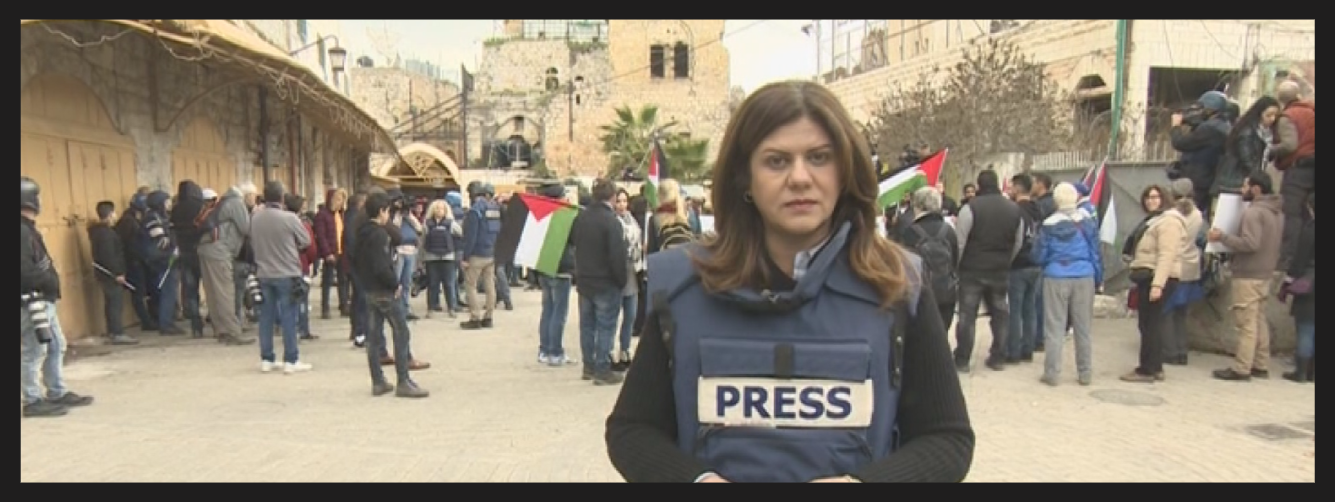
The undersigned human rights organizations strongly condemn the assassination of the journalist, Al-Jazeera correspondent, Shireen Abu Aqleh, after she was targeted by the forces of the occupation and apartheid state with a bullet in the head, and the journalist Ali Al-Samoudi was shot in the back, while covering the storming of the Jenin refugee camp Wednesday morning, 11 5/2022, thus increasing the number of Palestinian journalists and media professionals who were killed by the occupation bullets to (83) journalists since the beginning of 1972.
The signatories affirm that the crime of the occupation that targeted the journalist Shireen Abu Aqleh is a deliberate and premeditated act and a full-fledged assassination operation. The martyr Shireen Abu Aqleh is a direct victim of organized state terrorism, which behaves with the mentality of criminal gangs. This crime came as a result of the systematic incitement against Palestinian journalists by the occupying state against them for their professional role in revealing the truth and exposing its crimes. This is in addition to the international society's silence on the crimes of the occupation committed against the Palestinian people because of their double standards.
The signatories stress that the Israeli occupation forces, by their heinous act, want to obscure the truth and cover up their heinous crimes against the Palestinian people. In addition, the occupation, by its heinous act, wants to scare and intimidate journalists to prevent the transmission of the truth to the world.
The signatories call for the opening of a neutral, independent, and transparent international investigation under the supervision of the International Criminal Court to find out the crime of targeting journalist Abu Aqleh by the occupation forces, and the need to launch an international campaign by the Palestinian Journalists Syndicate, the International Federation of Journalists, international non-governmental organizations and Palestinian human rights institutions to hold Israeli war criminals accountable, to prevent impunity for perpetrators, and to bring a legal human rights case regarding this crime before the International Criminal Court, to prosecute Israeli leaders and politicians who publicly incite the killing of Palestinian civilians, including journalists. They are calling on the United Nations and the High Contracting Parties to the Fourth Geneva Convention to provide the necessary protection for journalists and media crews working in the occupied territories. Likewise, the Office of the United Nations High Commissioner for Human Rights considers targeting journalists while covering armed conflicts and wars a war crime, similar to targeting ambulance crews.
The signatories recall that journalists and media workers enjoy special protection under the provisions of international humanitarian law, just like civilians in times of armed conflict, especially Articles (51 and 79) of Additional Protocol I to the Geneva Conventions of 1949, where Article (51) paragraph (2) provides for the protection of the civilian population (the civilian population as such and the civilian population shall not be the object of attack). Article (79) of the same states that “Journalists who undertake dangerous professional missions in areas of armed conflict are civilians... and they must be protected in this capacity in accordance with the provisions of the conventions.” The crime committed by the occupation forces against journalist Abu Aqleh is a flagrant violation of UN Security Council Resolution 2222 on the protection of journalists, which the Council issued in May 2015.
No. |
Name in English |
Name in French |
Name in Arabic |
1. |
Coordination for Maghreb Human Rights Organizations (include 26 HR organizations from Morocco, Mauretania, Algeria, Tunisia and Libya) |
Coordination Maghrébine des Organisations des Droits de humains (dont 26 organisations RH du Maroc, de la Mauritanie, de l'Algérie, de la Tunisie et de la Libye |
التنسيقية المغاربية لمنظمات حقوق الإنسان(تضم 26 منظمة حقوقية في المغرب وموريتانيا والجزائر وتونس وليبيا) |
2. |
The Moroccan Coalition for Human Rights Bodies (includes 20 Moroccan human rights organizations) |
La Coalition marocaine pour les organes des droits de l'homme (comprend 20 organisations marocaines de défense des droits de l'homme) |
الإئتلاف المغربي لهيئات حقوق الإنسان (وتضم 23 هيئة) |
3. |
Union of Women's Action / Morocco |
Union Action Féminine / Maroc |
اتحاد العمل النسائي /المغرب |
4. |
Feminist Action Federation / Palestine |
Fédération d'action féministe / Palestine |
اتحاد العمل النسوي/فلسطين |
5. |
Bahrain Women's Union |
Union des femmes de Bahreïn |
الاتحاد النسائي البحريني |
6. |
The Jordan Federation of the independent Trade Unions |
La Fédération jordanienne des syndicats indépendants |
اتحاد النقابات العمالية المستقلة الأردني |
7. |
Union of Palestinian Women's Committees |
Union des comités de femmes palestiniennes |
اتحاد لجان المرأة الفلسطيمية |
8. |
Union of Palestinian Women Struggle Committees |
Comités de lutte de l'Union des femmes palestiniennes |
اتحاد لجان كفاح المرأة الفلسطيني |
9. |
Tunisian Coalition to Abolish the Death Penalty |
Coalition tunisienne pour l'abolition de la peine de mort |
الائتلاف التونسي لإلغاء عقوبة الإعدام |
10. |
The Human Rights Coalition to Stop the Aggression, Lift the Siege, and Build Peace in Yemen (includes 10 organizations from ten Arab countries) |
La Coalition des droits de l'homme pour arrêter l'agression, lever le siège et construire la paix au Yémen (comprend 10 organisations de dix pays arabes) |
الإئتلاف الحقوقي لوقف العدوان ورفع الحصار وبناء السلام في اليمن(يضم 10 منظمات من عشر بلدان عربية) |
11. |
Egyptian Coalition for Child Rights (includes 180 institutions) |
Coalition égyptienne pour les droits de l'enfant (comprend 180 institutions) |
الإئتلاف المصري لحقوق الطفل(يضم 100 مؤسسة) |
12. |
The National Coalition of Civil Society Organizations in Yemen |
La Coalition nationale des organisations de la société civile au Yémen |
الائتلاف الوطني لمنظمات المجتمع المدني باليمن |
13. |
Coalition for Integrity and Accountability Aman/Palestine |
Coalition pour l'intégrité et la responsabilité Aman/Palestine |
الإئتلاف من أجل النزاهة والمساءلة أمان/فلسطين |
14. |
The Academic Assembly for the support of Palestine-Lebanon |
L'Assemblée académique pour le soutien de la Palestine-Liban |
التجمع الأكاديمي في لبنان لدعم فلسطين/لبنان |
15. |
Women’s Cultural Assembly for Democracy / Iraq |
Assemblée culturelle des femmes pour la démocratie / Iraq |
التجمع الثقافي النسائي من أجل الديمقراطية/العراق |
16. |
Cultural Rally for Democracy / Iraq |
Rassemblement culturel pour la démocratie / Irak |
التجمع الثقافي من أجل الديمقراطية/العراق |
17. |
Jordan Coalition Against the Death Penalty |
Coalition jordanienne contre la peine de mort |
التحالف الأردني لمناهضة عقوبة الإعدام |
18. |
The International Alliance for Peace and Human Rights in the Middle East and Homeland/Iraq |
L'Alliance internationale pour la paix et les droits de l'homme au Moyen-Orient et dans la patrie/Ira |
التحالف الدولي للسلام وحقوق الإنسان في الشرق الأوسط والوطن /العراق |
19. |
Syrian Coalition Against the Death Penalty (SCODP) |
Coalition syrienne contre la peine de mort (SCODP) |
التحالف السوري لمناهضة عقوبة الإعدام(SCODP) |
20. |
Iraqi Coalition Against the Death Penalty |
Coalition irakienne contre la peine de mort |
التحالف العراقي لمناهضة عقوبة الإعدام |
21. |
The Iraqi Alliance for Human Rights Organizations (includes 55 organizations) |
L'Alliance irakienne pour les organisations des droits de l'homme (comprend 55 organisations) |
التحالف العراقي لمنظمات حقوق الإنسان (يضم 55 منظمة حقوقية) |
22. |
The Arab Coalition against the Death Penalty(includes 9 coalitions in 8 countries) |
La Coalition arabe contre la peine de mort (comprend 9 coalitions dans 8 pays) |
التحالف العربي لمناهضة عقوبة الإعدام(يضم 9 تحالفات في 8 دول عربية) |
23. |
The Egyptian Coalition for Human Rights and Development (includes 550 organizations)/Egypt |
La Coalition égyptienne pour les droits de l'homme et le développement (comprend 550 organisations)/Égypte |
التحالف المصري لحقوق الإنسان والتنمية(يضم 550 جمعية)/مصر |
24. |
Syrian Feminist Alliance to activate Security Council Resolution 1325 |
L'Alliance féministe syrienne va activer la résolution 1325 du Conseil de sécurité |
التحالف النسوي السوري لتفعيل قرار مجلس الأمن 1325 |
25. |
Yemeni Coalition Against the Death Penalty |
Coalition yéménite contre la peine de تmort |
التحالف اليمني لمناهضة عقوبة الإعدام |
26. |
The Moroccan Front in Support of Palestine and Against Normalization |
Le Front marocain de soutien à la Palestine et contre la normalisation |
الجبهة المغربية لدعم فلسطين وضد التطبيع |
27. |
Ibn Rushd Association for Development and Democracy / Iraq |
Association Ibn Rushd pour le développement et la démocratie / Irak |
جمعية ابن رشد للتنمية والديمقراطية/العراق |
28. |
The Jordan Society for Human Rights |
La Société jordanienne des droits de l'homme |
الجمعية الأردنية لحقوق الإنسان |
29. |
Palestinian Medical Relief Society |
Société palestinienne de secours médical |
جمعية الإغاثة الطبية الفلسطينيه |
30. |
Baraem Association for Social Work/Lebanon |
Association Baraem pour le travail social/Liban |
جمعية البراعم للعمل الخيري والاجتماعي/لبنان |
31. |
Civil Solidarity Association / Tunis |
Association solidarité laïque Tunisie/ Tunis |
جمعية التضامن المدني-المنوسط تونس |
32. |
Association for Development and Strategic Studies in Medenine, Tunisia |
Association pour le développement et les études stratégiques à Médenine, Tunisie |
جمعية التنمية والدراسات الإستراتيجية بمدنين تونس |
33. |
Tunisian Association for Cultural Action ATAC |
Association Tunisienne de l’Action Culturelle |
الجمعية التونسية للحراك الثقافي |
34. |
Tunisian Association of Democratic Women |
Association Tunisienne des Femmes Démocrates |
الجمعية التونسية للنساء الديمقراطيات |
35. |
Jordanian Jurists Association / Jordan |
Association des juristes jordaniens / Jordanie |
جمعية الحقوقيين الأردنيين |
36. |
Association palestinienne d'études sur le développement |
Association palestinienne d'études sur le développement |
جمعية الدراسات التنموية الفلسطينية |
37. |
The Palestinian Developmental Feminist Studies Association |
Association palestinienne d'études féministes pour le développement |
جمعية الدراسات النسوية التنموية الفلسطينية |
38. |
Association pour la Défense des Droits de l'Homme au Maroc (ASDHOM) |
Association pour la Défense des Droits de l'Homme au Maroc (ASDHOM) |
جمعية الدفاع عن حقوق الإنسان بالمغرب(ASDHOM) |
39. |
Association des Pionniers pour la Culture et les Arts / Palestine |
Association des Pionniers pour la Culture et les Arts / Palestine |
جمعية الرواد للثقافة والفنون / فلسطين |
40. |
Alrowwad Cultural and Arts Society/Palestine |
Société culturelle et artistique Alrowwad / Palestine
|
جمعية الرواد للثقافة والفنون /فلسطين |
41. |
Working Women's Association/Jordan |
Association des femmes travailleuses/Jordanie |
جمعية السيدات العاملات/الأردن
|
42. |
Association of the International Cultural Network for Palestine |
Association du Réseau Culturel International pour la Palestine |
جمعية الشبكة الثقافية الدولية من أجل فلسطين/لبنان |
43. |
ADDAMEER-Prisoner support and human rights association/Palestine |
ADDAMEER-Association de soutien aux prisonniers et des droits humains/Palestine |
جمعية الضمير لرعاية الأسير وحقوق الإنسان/ فلسطين |
44. |
Women's Action Society for the Rehabilitation of Women and child/ Palestine |
Société d'action des femmes pour la réhabilitation des femmes et des enfants / Palestine |
جمعية العمل النسائي لتأهيل المرأة والطفل /فلسطين |
45. |
Lebanese Association of Democratic Jurists |
Association libanaise des juristes démocrates |
الجمعية اللبنانية للحقوقيين الديمقراطيين |
46. |
Société libyenne pour les droits de l'homme et la recherche scientifique/Libye |
Société libyenne pour les droits de l'homme et la recherche scientifique/Libye |
الجمعية الليبية لحقوق الإنسان والبحث العلمي/ليبيا |
47. |
Palestinian Working Woman Society for Development PWWSD”
|
Association des travailleuses palestiniennes pour le développement
|
جمعية المرأة العاملة الفلسطينية للتنمية/فلسطين
|
48. |
Women’s Association for Women’s Development and Development/ Yemen |
Association des femmes pour le développement et le développement des femmes/Yémen |
جمعية المرأة للتنمية والتطوير النسوي/ اليمن |
49. |
Egyptian Association for Scientific and Technology Development |
Association égyptienne pour le développement scientifique et technologique |
الجمعية المصرية للتنمية العلمية والتكنولوجيا |
50. |
Moroccan Association for Human Rights |
Association Marocaine des Droits de l'Homme |
الجمعية المغربية لحقوق الإنسان |
51. |
The Moroccan Association for Women Progressive |
L'Association Marocaine des Femmes Progressistes |
الجمعية المغربية للنساء التقدميات |
52. |
Association marocaine pour l'élimination des violences faites aux femmes/Maroc |
Association marocaine pour l'élimination des violences faites aux femmes/Maroc |
الجمعية المغربية لمناهضة العنف ضد النساء/المغرب |
53. |
Association of the Economic and Social Forum for Women / Jordan |
Association du Forum économique et social pour les femmes / Jordanie |
جمعية المنتدى الاقتصادي الاجتماعي للنساء/ الأردن |
54. |
Society of Arab Agricultural Engineers / Palestine |
Société des ingénieurs agronomes arabes / Palestine |
جمعية المهندسين الزراعيين العرب / فلسطين |
55. |
Association mauritanienne des droits de l'homme |
Association mauritanienne des droits de l'homme |
الجمعية الموريتانية لحقوق الإنسان |
56. |
ALMizan Association for Development and Human Rights /Iraq |
Association ALMizan pour le développement et droits de l'homme / Irak |
جمعية الميزان للتنمية وحقوق الإنسان في العراق |
57. |
An-Najah Women's Association / Yemen |
Association des femmes d'An-Najah / Yémen |
جمعية النجاح النسوية/ اليمن |
58. |
Social Relief Society for Women Development / Palestine |
Société de Secours Social pour le Développement des Femmes / Palestine |
جمعية النجدة الاجتماعية لتنمية المرأة/فلسطين |
59. |
Al Najda Association for the Development of Palestinian Women - West Bank/Palestine |
Union générale des femmes palestiniennes/ Palestine |
جمعية النجدة لتنمية المرأة الفلسطينية- الضفة الغربية/فلسطين |
60. |
Arab Women Organization-Jordan |
Organisation des femmes arabes-Jordanie |
جمعية النساء العربيات/الأردن |
61. |
Tattoo Association/Tunisia |
Association de tatouage/Tunisie |
جمعية الوشم/تونس |
62. |
The National Association for the Defense of Rights and Freedoms / Egypt |
L'Association Nationale de Défense des Droits et Libertés / Egypte |
الجمعية الوطنية للدفاع عن الحقوق والحريات / مصر |
63. |
Ana Insan Association for the Rights of the Disabled/ Jordan |
Association Ana Insan pour les droits des personnes handicapées / Jordanie |
جمعية أنا إنسان لحقوق المعوقين/ الأردن |
64. |
Beyti Association/Lebanon |
Association Beyti/Liban |
جمعية بيتي/لبنان |
65. |
Impact Association for Human Rights/Jordan |
Impact Association for Human Rights/Jordanie |
جمعية تأثير لحقوق الإنسان/الأردن |
66. |
Association to enable independent living/Lebanon |
Association pour permettre la vie autonome/Liban |
جمعية تمكين العيش باستقلال/لبنان |
67. |
Women's Media Development Foundation - Tam/Palestin |
Fondation pour le développement des médias des femmes - Tam/Palestine |
جمعية تنمية إعلام المرأة-تام/فلسطين |
68. |
Association for the Development of People with Special Needs / Yemen |
Association pour le développement des personnes ayant des besoins spéciaux / Yémen |
جمعية تنمية ذوي الاحتياجات الخاصة / اليمن |
69. |
Jothor Society for Human Rights-Jordan |
Société Jothor pour les droits de l'homme-Jordanie |
جمعية جذور لحقوق المواطن/ الأردن |
70. |
Hemaya Association for Human Rights and Development/Egypt |
Association Hemaya pour les droits humains et le développement/Égypte |
جمعية حماية لحقوق الإنسان والتنمية/مصر |
71. |
Jose Marti Association for Arab-Latin American Solidarity |
Association José Marti pour la solidarité arabo-latino-américaine |
جمعية خوسيه مارتي للتضامن العربي الامريكي اللاتيني |
72. |
Rachel Corrie Association for Solidarity Among Peoples |
Association Rachel Corrie pour la solidarité entre les peuples |
جمعية راشل كوري للتضامن بين الشعوب |
73. |
Rasid Association for Human Rights/ Lebanon |
Association Rasid pour les droits de l'homme / Liban |
جمعية راصد لحقوق الإنسان/لبنان |
74. |
Roaa Women Association-Jordan |
Association des femmes Roaa-Jordanie |
جمعية رؤى نسائية/ الأردن |
75. |
Women's Network Society for Women Support/ Jordan |
Réseau de femmes pour le soutien aux femmes/Jordanie |
جمعية شبكة المرأة لدعم المرأة/ الأردن |
76. |
Candles Association for Equality/Morocco |
Association Bougiés pour l'Egalité/Maroc |
جمعية شموع للمساواة/المغرب |
77. |
Aisha Association for the Protection of Women and Children Gaza / Palestine |
Association Aisha pour la protection des femmes et des enfants Gaza / Palestine |
جمعية عايشة لحماية المرأة والطفل غزة / فلسطين |
78. |
Kemet Association for Human Development/Egypt |
Association Kemet pour le développement humain/Égypte |
جمعية كيميت للتنمية الإنسانية/مصر |
79. |
Mothers School Association /Palestine |
Association Ecole des Mères/ Palestine |
جمعية مدرسة الأمهات/فلسطين |
80. |
Ma'an Association The Forum of Arab Women in the Negev/Palestine |
Association Ma'an Le Forum des Femmes Arabes du Néguev/Palestine |
جمعية معاَ منتدى النساء العربيات في النقب/فلسطين |
81. |
Association of the Jordanian Women's Solidarity Institute |
Association de l'Institut de solidarité des femmes jordaniennes |
جمعية معهد تضامن النساء الأردني |
82. |
Amman Society Forum for Human Rights |
Forum de la société d'Amman pour les droits de l'homme |
جمعية منتدى عمان لحقوق الإنسان/ الأردن |
83. |
Women Against Violence Association/ Palestine |
Association des femmes contre la violence / Palestine |
جمعية نساء ضد العنف/فلسطين |
84. |
Tunisia's Nachas Association |
Association des Nachas de Tunisie |
جمعية نشاز تونس |
85. |
Tattoo Association/Tunisia |
Association de tatouage/Tunisie |
جمعية وشم/تونس |
86. |
Vigil for Democracy and the Civil State / Tunisia |
Veillée pour la Démocratie et l'Etat Civil / Tunisie |
جمعية يقظة من أجل الديمقراطية والدولة المدنية /تونس |
87. |
The global movement to defend children |
Le mouvement mondial de défense des enfants |
الحركة العالمية للدفاع عن الأطفال |
88. |
Protection of human rights defenders in the Arab world (France) |
Protection des défenseurs des droits de l'homme dans le monde arabe (France) |
حماية المدافعين عن حقوق الإنسان في العالم العربي (فرنسا) |
89. |
Protecting human rights defenders around the Arab world/ France |
Protéger les défenseurs des droits humains dans le monde/ France |
حماية المدافعين عن حقوق الإنسان في العالم العربي/ فرنسا |
90. |
The Jordanian Academic Campaign for Solidarity with the Rights of the Palestinian People |
La campagne universitaire jordanienne pour la solidarité avec les droits du peuple palestinien |
الحملة الاكاديمية الأردنية للتضامن مع حقوق الشعب الفلسطيني |
91. |
The International Campaign to End the Siege on Yemen |
La Campagne internationale pour mettre fin au siège du Yémen |
الحملة الدولية لفك الحصار عن اليمن |
92. |
Tunisian League for Tolerance |
Ligue tunisienne pour la tolérance |
الرابطة التونسية للتسامح |
93. |
The Tunisian League for the Defense of Human Rights |
La Ligue tunisienne de défense des droits de l'homme |
الرابطة التونسية للدفاع عن حقوق الإنسان |
94. |
The Algerian League for Defense Human Rights |
La Ligue algérienne de défense des droits de l'homme |
الرابطة الجزائرية للدفاع عن حقوق الإنسان |
95. |
Free Tunisian Writers Association |
Association libre des écrivains tunisiens |
رابطة الكتاب التونسيين الأحرار |
96. |
Association of Women Heads of Families from Mauritania |
Association des femmes chefs de famille de Mauritanie |
رابطة النساء معيلات الأسر من موريتانيا |
97. |
Iraqi League for Human Rights Trainers |
Irakien Ligue des formateurs des droits de l'homme |
رابطة مدربي حقوق الإنسان العراقية |
98. |
Rashid For Integrity and Transparency/ Jordan |
Rashid pour l'intégrité et la transparence/ Jordanie |
رشيد للنزاهة والشفافية/ الأردن |
99. |
Freedom Pioneers for Integrity and Human Rights Training / Jordan |
Pionniers de la liberté pour la formation à l'intégrité et aux droits de l'homme / Jordanie |
رواد الحرية للتدريب على النزاهة وحقوق الإنسان/ الأردن |
100. |
The Jordanian Network for Human Rights (includes 11 human rights organizations) |
Le Réseau jordanien pour les droits de l'homme (comprend 11 organisations de défense des droits de l'homme) |
الشبكة الأردنية لحقوق الإنسان (تضم 11 منظمات حقوقية) |
101. |
The Moroccan Democratic Network for Solidarity with the Peoples |
Le Réseau Démocratique Marocain de Solidarité avec les Peuples |
الشبكة الديمقراطية المغربية للتضامن مع الشعوب |
102. |
Global Network for the Defense of the Palestinian People |
Réseau mondial pour la défense du peuple palestinien |
الشبكة العالمية للدفاع عن الشعب الفلسطيني |
103. |
The Arab Human Rights Trainers Network |
Le réseau arabe des formateurs des droits de l'homme |
الشبكة العربية لمدربي حقوق الإنسان |
104. |
Women’s Peace and Security Network (Yemen) |
Réseau des femmes pour la paix et la sécurité (Yémen) |
شبكة المرأة للسلام والأمن/ اليمن |
105. |
Iraqi Women's Network |
Réseau des femmes irakiennes |
شبكة النساء العراقيات |
106. |
The Syrian National Network for Civil Peace and Community Safety. |
Le Réseau national syrien pour la paix civile et la sécurité communautaire. |
الشبكة الوطنية السورية للسلم الأهلي والأمان المجتمعي |
107. |
Salma Network -Feminist Organization against violence in the Arab world |
Réseau Salma - Organisation féministe contre la violence dans le monde arabe |
شبكة سلمى الاقليمية لمناهضة العنف ضد النساءفي المنطقة العربية |
108. |
Dignity Network |
Réseau Dignité |
شبكة كرامة |
109. |
Oklam newspaper, Mauritania |
Journal Oklam, Mauritanie |
صحيفة أقلام، موريتانيا |
110. |
Women's Affairs Staff/Palestine |
Personnel des affaires féminines/Palestine |
طاقم شؤون المرأة/فلسطين |
111. |
Palestinian Women Against Violence-Spada/Palestine |
Femmes palestiniennes contre la violence-Spada/Palestine |
فلسطينيات ضد العنف-فضا/فلسطين |
112. |
Feminist organizing entity/Palestine |
Entité organisatrice féministe/Palestine |
كيان تنظيم نسوي/فلسطين |
113. |
Committees for the Defense of Democratic Freedoms and Human Rights in Syria (LDH) |
Commissions pour la défense des libertés démocratiques et des droits de l'homme en Syrie (LDH) |
لجان الدفاع عن حقوق الإنسان والحريات الديمقراطية في سورية |
114. |
Committee for the Defense of Palestinian Human Rights Organizations in Europe |
Comité de Défense des Organisations Palestiniennes des Droits de l'Homme en Europe |
لجنة الدفاع عن منظمات الدفاع عن حقوق الإنسان الفلسطينية في أوروبا |
115. |
The International Committee for Solidarity with Prisoners in Israeli Prisons |
Le Comité international de solidarité avec les détenus dans les prisons israéliennes |
اللجنة الدولية للتضامن مع الأسرى في السجون الإسرائيلية |
116. |
Syrian Medical Committee/Paris |
Commission médicale syrienne/Paris |
اللجنة الطبية السورية/باريس |
117. |
Arab Commission for Human Rights |
Commission Arabe des Droits Humains |
اللجنة العربية لحقوق الإنسان/باريس |
118. |
The Kurdish Committee for Human Rights in Syria (Al Rased). |
Le Comité kurde des droits de l'homme en Syrie (A Rasid). |
اللجنة الكردية لحقوق الإنسان في سوريا (الراصد) |
119. |
The Vigilance Committee for Democracy in Tunisia / Belgium |
Le Comité de Vigilance pour la Démocratie en Tunisie - Belgique
|
لجنة اليقظة من أجل الديمقراطية في تونس ببلجيكا |
120. |
The Committee for the Respect of Human Rights in Tunisia |
Le Comité pour le respect des droits de l'homme en Tunisie |
اللجنة من أجل احترام حقوق الإنسان في تونس |
121. |
The Palestinian Initiative to Deepen Global Dialogue and Democracy - Muftah/Palestine |
L'initiative palestinienne pour approfondir le dialogue mondial et la démocratie - Muftah/Palestine |
المبادرة الفلسطينية لتعميق الحوار العالمي والديمقراطية-مفتاح/فلسطين |
122. |
The International Council Supporting Fair Trials and Human Rights (ICSFT) |
Le Conseil international de soutien aux procès équitables et aux droits de l'homme (ICSFT) |
المجلس الدولي لدعم المحاكمات العادلة وحقوق الإنسان ICSFT |
123. |
International Council for Relief and Development |
Conseil international de secours et de développement |
المجلس الدولي للاغاثة والتنمية |
124. |
Yemeni Council for Rights and Freedoms / Yemen |
Conseil yéménite des droits et libertés / Yémen |
المجلس العالمي للحقوق والحريات/اليمن |
125. |
Norwegian Council for Tolerance/Kingdom of Norway |
Conseil norvégien pour la tolérance/Royaume de Norvège |
المجلس النرويجي للتسامح/مملكة النرويج |
126. |
Lebanese Council of Women (includes 150 organization) |
Conseil libanais des femmes (comprend 150 organisations) |
المجلس النسائي اللبناني( يضم 150 منظمة) |
127. |
Lawyers for Justice /Yemen |
Avocats pour la justice /Yémen |
محامو العدالة مؤسسة تعنى بالحقوق والحريات/ اليمن |
128. |
Democratic School/Yemen |
École démocratique/Yémen |
المدرسة الديمقراطية/اليمن |
129. |
International Observatory for Documentation of Human Rights Violations/ Argentina |
Observatoire international pour la documentation des violations des droits de l'homme / Argentine |
المرصد الدولي لتوثيق انتهاكات حقوق الإنسان/الأرجنتين |
130. |
Arab World Observatory for Democracy and Elections |
Observatoire du monde arabe pour la démocratie et les élections |
مرصد العالم العربي للديمقراطية والانتخابات(المرصد) |
131. |
Teacher Creativity Center/Palestine |
Centre de créativité des enseignants/Palestine |
مركز إبداع المعلم/فلسطين |
132. |
Human Rights & Democracy Media Center “SHAMS"/Palestine |
Centre des médias des droits de l'homme et de la démocratie «SHAL'Alliance |
مركز إعلام حقوق الإنسان والديمقراطية "شمس"/فلسطين |
133. |
Center for Research, Legal Consultation and Protection for Women – Gaza / Palestine |
Centre de Recherche, de Consultation Juridique et de Protection des Femmes – Gaza / Palestine |
مركز الأبحاث والاستشارات القانونية والحماية للمرأة-غزة/ فلسطين |
134. |
Community Media Center/Palestine |
Centre des médias communautaires/Palestine |
مركز الإعلام المجتمعي/فلسطين |
135. |
Arab Women Media Center / Jordan |
Centre des médias des femmes arabes / Jordanie |
مركز الإعلاميات العربيات/الأردن |
136. |
Al-Badeel Center for Studies and Research/Jordan |
Centre d'études et de recherche Al-Badeel/Jordanie |
مركز البديل للدراسات والأبحاث/الأردن |
137. |
Khiam Rehabilitation Center for Victims of Torture-Lebanon |
Khiam Centre de réadaptation pour les victimes de la torture-Liban |
مركز الخيام لتأهيل ضحايا التعذيب/لبنان |
138. |
Women’s Studies Center/ Palestine |
Centre d'études sur les femmes/Palestine |
مركز الدراسات النسوية/ فلسطين
|
139. |
International Center for the Promotion of Rights and Freedoms – Swiss Association |
Centre International pour la Promotion des Droits et Libertés – Association Suisse |
المركز الدولي لدعم الحقوق والحريات- جمعية سويسرية |
140. |
Al Saraya Community Service Center/ Palestine |
Centre de services communautaires Al Saraya / Palestine |
مركز السرايا لخدمة المجتمع/فلسطين |
141. |
Childhood Center, Nazareth Nurseries Foundation/Palestine |
Centre de la petite enfance, Nazareth Nurseries Foundation/Palestine |
مركز الطفولة مؤسسة حضانات الناصرة/فلسطين |
142. |
The Arab European Center for Human Rights and International Law / Norway |
Centre arabe européen pour les droits de l'homme et le droit international / Norvège |
المركز العربي الأوروبي لحقوق الإنسان والقانون الدولي/ النرويج |
143. |
The Palestinian Center for the Independence of the Legal Profession and the Judiciary "Musawa" |
Le Centre Palestinien pour l'Indépendance de la Profession Juridique et de la Magistrature "Musawa" |
المركز الفلسطيني لاستقلال المحاماة والقضاء "مساواة" |
144. |
Palestinian Centre for Peace and Democracy PCPD
|
Centre palestinien pour les questions de paix et de démocratie |
المركز الفلسطيني لقضايا السلام والديمقراطية/فلسطين |
145. |
Center for International Humanitarian Law and Human Rights/Yemen |
Centre pour le droit international humanitaire et les droits de l'homme/Yémen |
مركز القانون الدولي الإنساني وحقوق الإنسان/اليمن |
146. |
Jerusalem Center for Legal Aid and Human Rights/Palestine |
Centre d'aide juridique et des droits de l'homme de Jérusalem/Palestine |
مركز القدس للمساعدة القانونية وحقوق الإنسان/فلسطين |
147. |
Al-Kalima Center for Human Rights in Cairo/Egypt |
Centre Al-Kalima pour les droits de l'homme au Caire/Égypte |
مركز الكلمة لحقوق الإنسان بالقاهرة/مصر |
148. |
El Mahrousa Center for Development and Participation / Egypt |
Centre El Mahrousa pour le développement et la participation / Égypte |
مركز المحروسة للتنمية والمشاركة/مصر |
149. |
Women's Center for Legal Aid and Counselling/Palestine |
Centre d'aide et de conseil juridiques pour femmes/Palestine |
مركز المرأة للإرشاد القانوني والاجتماعي/ فلسطين |
150. |
Excellence Center for Development Consulting/Bahrain |
Centre d'excellence pour le conseil en développement / Bahreïn |
مركز تفوق الاستشاري للتنمية/البحرين |
151. |
Jothor Center for Human Rights/Jordan |
Centre Jothor pour les droits de l'homme/ Jordanie |
مركز جذور لحقوق الإنسان/الأردن |
152. |
Hurriyat Center/Palestine |
Hurriyat Centre/Palestine |
مركز حريات/فلسطين |
153. |
Center for the Protection and Freedom of Journalists/ Jordan |
Centre pour la protection et la liberté des journalistes/Jordanie |
مركز حماية وحرية الصحفيين/ الأردن |
154. |
Center for Gender Studies - Gender / Sudan |
Centre d'études sur le genre - Genre / Soudan |
مركز دراسات النوع الاجتماعي-الجندر /السودان |
155. |
Damascus Center for Theoretical and Civil Studies |
Centre de Damas pour les études théoriques et civiles |
مركز دمشق للدراسات النظرية والحقوقية المدنية |
156. |
Women's Affairs Center/Palestine |
Centre des affaires féminines/Palestine |
مركز شؤون المرأة/فلسطين |
157. |
Adalah Center for Human Rights Studies/Jordan |
Adalah Center for Human Rights Studies/Jordanie |
مركز عدالة لدراسات حقوق الإنسان/الأردن |
158. |
Amman Center for Human Rights Studies (ACHRS) |
Amman Centre d'études sur les droits de l'homme (ACHRS) |
مركز عمان لدراسات حقوق الإنسان/الأردن |
159. |
Ain Center for Human Rights/Yemen |
Ain Centre for Human Rights/Yémen |
مركز عين لحقوق الإنسان/اليمن |
160. |
Metro Center for Defending the Rights of Journalists/ Iraq |
Centre métropolitain de défense des droits des journalistes/ Irak |
مركز مترو للدفاع عن حقوق الصحفيين/ العراق |
161. |
Wasel Center for Youth Development / Palestine |
Centre Wasel pour le développement des jeunes / Palestine |
مركز واصل لتنمية الشباب / فلسطين |
162. |
Applied Research Institute Jerusalem - (ARIJ) |
Institut de recherche appliquée de Jérusalem - (ARIJ) |
معهد الأبحاث التطبيقية القدس – (أريج) |
163. |
Scandinavian Institute of Human Rights/Geneva |
Institut Scandinave des Droits de l'Homme/Genève |
المعهد الاسكندنافي لحقوق الإنسان/جنيف |
164. |
International Institute for Peace, Justice and Human Rights/Geneva |
Institut international pour la paix, la justice et les droits de l'homme/Genève |
المعهد الدولي للسلام والعدالة وحقوق الإنسان/ جنيف |
165. |
South/Palestine Female Journalists Forum |
Forum des femmes journalistes du Sud/Palestine |
ملتقى اعلاميات الجنوب/فلسطين |
166. |
Humanitarian Forum for Women's Rights/ Jordan |
Forum humanitaire pour les droits des femmes/ Jordanie |
الملتقى الإنساني لحقوق المرأة/ الأردن |
167. |
Dialogue Forum for Development and Human Rights / Egypt |
Forum de dialogue pour le développement et les droits de l'homme / Egypte |
ملتقى الحوار للتنمية وحقوق الإنسان/مصر |
168. |
The National Forum for the Defense of Public Freedoms and Human Rights/ Jordan |
Le Forum National pour la Défense des Libertés Publiques et des Droits Humains/ Jordanie |
الملتقى الوطني للدفاع عن الحريات العامة وحقوق الإنسان/ الأردن |
169. |
Houran Forum for Citizenship/Syria |
Forum de Houran pour la citoyenneté/Syrie |
ملتقى حوران للمواطنة/سوريا |
170. |
Libyan Women's Platform for Peace/Libya |
Plateforme des femmes libyennes pour la paix/Libye |
منبر المرأة الليبية من أجل السلام/ليبيا |
171. |
Consultation Forum for Female Members Takamol/Palestine |
Forum de consultation pour les membres féminins Takamol/Palestine |
المنتدى الاستشاري للعضوات تكامل/فلسطين |
172. |
Media Forum in Lebanon |
Forum des médias au Liban |
منتدى الإعلام في لبنان |
173. |
Bahrain Forum for Human Rights |
Forum de Bahreïn pour les droits de l'homme |
منتدى البحرين لحقوق الإنسان |
174. |
Political and Social Youth Forum/Palestine |
Forum politique et social de la jeunesse/Palestine |
منتدى الشباب السياسية والاجتماعي/فلسطين |
175. |
Sisters Arab Forum for Human Rights (Yemen) |
Forum Soeurs arabe des droits de l'homme (Yémen) |
منتدى الشقائق العربي لحقوق الإنسان/ اليمن |
176. |
Sudanese National Civil Forum(includes 54 civil society organizations) / Sudan |
Le Forum civil au Soudan (qui comprend 54 organisations de la société civile) / Soudan |
المنتدى المدني القومي في السودان (يضم 54 منظمة مجتمع مدني) |
177. |
Moroccan Forum for Truth and Equity |
Forum marocain pour la vérité et l'équité |
المنتدى المغربي من أجل الحقيقة والإنصاف |
178. |
African Organization for Human Rights Monitoring/Morocco |
Organisation Africaine de Surveillance des Droits de l'Homme/Maroc |
المنظمة الافريقية لمراقبة حقوق الانسان/ المغرب |
179. |
The Tunisian Organization against Torture |
Organisation tunisienne contre la torture |
المنظمة التونسية لمناهضة التعذيب |
180. |
Gender Studies and Information Organization / Iraq |
Organisation d'études et d'information sur le genre / Irak |
منظمة الدراسات والمعلومات الجندرية/العراق |
181. |
Organization for Defending Victims of Violation (ODVV)/Geneva |
Organisation de Défense des Victimes de Violation (ODVV)/Genève |
منظمة الدفاع عن حقوق ضحايا العنف/جنيف |
182. |
Organization for the Defense of Prisoners of Conscience in Syria - Rawanga |
Organisation pour la défense des prisonniers d'opinion en Syrie - Rawanga |
منظمة الدفاع عن معتقلي الرأي في سورية-روانكة |
183. |
The Arab Organization for Human Rights in Syria |
L'Organisation arabe des droits de l'homme en Syrie |
المنظمة العربية لحقوق الإنسان في سورية |
184. |
The Kurdish Organization for Human Rights in Syria (DAD) |
L'Organisation kurde pour les droits de l'homme en Syrie (DAD) |
المنظمة الكردية لحقوق الإنسان في سورية( DAD ) |
185. |
Social Initiative Organization / Syria |
Organisation d'Initiative Sociale / Syrie |
منظمة المبادرة الاجتماعية/سورية |
186. |
ARDO Aid and Development Organization/Yemen |
ARDO Organisation d'aide et de développement/Yémen |
منظمة المساعدات والتنمية ARDO /اليمن |
187. |
Egyptian Organization for Human Rights |
Organisation égyptienne des droits de l'homme
|
المنظمة المصرية لحقوق الإنسان |
188. |
Moroccan Organization for Human Rights |
Organisation Marocaine des Droits de l'Homme |
المنظمة المغربية لحقوق الإنسان |
189. |
Al Mouel Organization for Rights and Development / Yemen |
Organisation Al Mouel pour les Droits et le Développement / YémenLe Forum parallèle égyptien / États-Unis |
منظمة الموئل للحقوق والتنمية/ اليمن |
190. |
National Organization of Amazonas / Libya |
Organisation nationale de l'Amazonas / Libye |
المنظمة الوطنية لأمازونات / ليبيا |
191. |
National Organization for Human Rights in Syria |
Organisation nationale des droits de l'homme en Syrie |
المنظمة الوطنية لحقوق الإنسان في سورية |
192. |
Yemeni Organization for Dialogue of Religions and Cultures |
Organisation yéménite pour le dialogue des religions et des cultures |
المنظمة اليمنية لحوار الأديان والثقافات |
193. |
Yemeni Organization for Humanitarian Action / Yemen |
Organisation yéménite pour l'action humanitaire / Yémen |
المنظمة اليمنية للعمل الإنساني/ اليمن |
194. |
Freedom House Organization to defend human rights and combat slavery and its remnants/ Mauritania |
Freedom House Organisation pour défendre les droits humains et combattre l'esclavage et ses vestiges/ Mauritanieا |
منظمة بيت الحرية للدفاع عن حقوق الإنسان ومحاربة العبودية ومخلفاتها/ موريتانيا |
195. |
Human Rights Organization in Syria- Maf |
Organisation des droits de l'homme en Syrie - Maf |
منظمة حقوق الانسان في سوريا- ماف |
196. |
Organization for the Protection of Law and the Promotion of Peace / Yemen |
Organisation pour la protection du droit et la promotion de la paix / Yémen |
منظمة حماية القانون وتعزيز السلم/ اليمن |
197. |
Sawa Center for Human Rights / Iraq |
Centre Sawa pour les droits de l'homme / Irak |
منظمة ساوة لحقوق الإنسان /العراق |
198. |
Desert Youth Organization for Development and Human Rights / Libya |
Organisation des jeunes du désert pour le développement et les droits de l'homme / Libye |
منظمة شباب الصحراء للتنمية وحقوق الإنسان/ليبيا |
199. |
KAFA Violence and Exploitation Organization/Lebanon |
KAFA Violence and Exploitation Organization/Liban |
منظمة كفى عنف واستغلال/لبنان |
200. |
Humanity Relief and Development Organization / Yemen |
Humanity Relief and Development Organization / Yémen |
منظمة هيومنتي للإغاثة والتنمية / اليمن |
201. |
Yemeni Organization for Defense Rights and Democratic Freedoms/Yemen |
Organisation yéménite pour les droits de la défense et les libertés démocratiques |
منظمة يمن للدفاع عن الحقوق والحريات الديمقراطية/اليمن |
202. |
Al-Bashaer Foundation for the Development of Women and Children/Yemen |
Fondation Al-Bashaer pour le développement des femmes et des enfants/Yémen |
مؤسسة البشائر لتنمية المرآة والطفل/ اليمن |
203. |
Al-Haq Foundation for Freedom of Opinion and Expression and Human Rights/Egypt |
Fondation Al-Haq pour la liberté d'opinion et d'expression et les droits de l'homme/Égypte |
مؤسسة الحق الحرية الرأي والتعبير وحقوق الإنسان/مصر |
204. |
National Prisoner Foundation/Yemen |
Fondation nationale des prisonniers/Yémen |
مؤسسة السجين الوطنية/اليمن |
205. |
The Middle East Foundation for Development and Human Rights (Yemen) |
La Fondation du Moyen-Orient pour le développement et les droits de l'homme (Yémen) |
مؤسسة الشرق الأوسط للتنمية وحقوق الإنسان/اليمن |
206. |
Addameer Foundation for Prisoners Care and Human Rights /Palestine |
Fondation Addameer pour la prise en charge des prisonniers/Palestine |
مؤسسة الضمير لرعاية الأسرى وحقوق الإنسان /فلسطين |
207. |
Al-Tayeb Foundation for Relief and Development / Yemen |
Fondation Al-Tayeb pour l'aide d'urgence et le développement / Yémen |
مؤسسة الطيب للإغاثة والتنمية/ اليمن |
208. |
Justice and Citizenship Foundation for Human Rights/ Egypt |
Fondation Justice et Citoyenneté pour les Droits de l'Homme/ Egypte |
مؤسسة العدالة والمواطنة لحقوق الإنسان -المنيا/ مصر |
209. |
The Arab Foundation to support Civil Society and Human Rights/Egypt |
La Fondation arabe pour soutenir la société civile et les droits de l'homme / Égypte |
المؤسسة العربية لدعم المجتمع المدني وحقوق الإنسان/ مصر |
210. |
New Woman Foundation/Egypt |
Fondation New Woman/Égypte |
مؤسسة المرأة الجديدة/مصر |
211. |
The Egyptian Foundation for Family Development / Egypt |
La Fondation égyptienne pour le développement de la famille / Egypte |
المؤسسة المصرية لتنمية الأسرة/مصر |
212. |
The Egyptian Foundation for the Advancement of Children's Rights |
La Fondation égyptienne pour la promotion des droits de l'enfant |
المؤسسة المصرية للنهوض بأوضاع حقوق الطفل/ مصر |
213. |
National Foundation to Combat Human Trafficking/Yemen |
Fondation nationale de lutte contre la traite des êtres humains/Yémen |
المؤسسة الوطنية لمكافحة الاتجار بالبشر/اليمن |
214. |
The National Foundation for Combating Smoking, Qat and Drugs/Yemen |
Fondation nationale de lutte contre le tabagisme, le qat et la drogue/Yémen |
المؤسسة الوطنية لمكافحة التدخين والقات والمخدرات/ اليمن |
215. |
Cooperation Foundation for Conflict Resolution / Palestine |
Fondation de coopération pour la résolution des conflits / Palestine |
مؤسسة تعاون لحل الصراع / فلسطين |
216. |
Haidara Foundation for Peace and Human Development / Yemen |
Fondation Haidara pour la paix et le développement humain / Yémen |
مؤسسة حيدرة للسلام والتنمية الانسانية/ اليمن |
217. |
Regen Foundation for Development and Human Rights/ Yemen |
Fondation Regen pour le développement et les droits de l'homme / Yémen |
مؤسسة ريجين للتنمية وحقوق الإنسان/ اليمن |
218. |
Future Partners Foundation for Development and Human Rights - Yemen |
Future Partners Foundation for Development and Human Rights - Yémen |
مؤسسة شركاء المستقبل للتنمية وحقوق الإنسان - اليمن |
219. |
Justice Foundation for Human Rights / Yemen |
Justice Foundation for Human Rights / Yémen |
مؤسسة عدالة لحقوق الإنسان/ اليمن |
220. |
Filistinyat Foundation |
Fondation Filistinyat |
مؤسسة فلسطينيات |
221. |
Egyptian Women's Issues Foundation |
Fondation égyptienne pour les questions féminines |
مؤسسة قضايا المراة المصرية |
222. |
Mada Foundation for Human Rights / Iraq |
Fondation Mada pour les Droits de l'Homme / Irak |
مؤسسة مدى لحقوق الإنسان/العراق |
223. |
Adwar Foundation for Social Change (feminist organization) - Hebron / Palestine |
Adwar Foundation for Social Change (organisation féministe) - Hébron / Palestine |
مؤسسه ادوار للتغيير الاجتماعي(مؤسسة نسوية)-الخليل/فلسطين |
224. |
National Syndicate of Tunisian Journalists |
Syndicat national des journalistes tunisiens |
النقابة الوطنية للصحفيين التونسيين |
225. |
The National Commission for the Independence of the Judiciary / Palestine |
La Commission Nationale pour l'Indépendance de la Magistrature / Palestine |
الهيئة الأهلية لإستقلال القضاء/فلسطين |
226. |
The International Commission for Supporting the Rights of the Palestinian People |
La Commission internationale pour le soutien des droits du peuple palestinien |
الهيئة الدولية لدعم حقوق الشعب الفلسطيني"حشد" |
227. |
Sahel Authority for the Defense of Human Rights/Mauritania |
Autorité sahélienne de défense des droits de l'Homme/Mauritanie |
هيئة الساحل للدفاع عن حقوق الإنسان/موريتانيا |
228. |
Moroccan Commission for Human Rights |
Commission marocaine des droits de l'homme |
الهيئة المغربية لحقوق الإنسان |
229. |
Zahra Chinguetti Agency/ Mauritania |
Agence Zahra Chinguetti/ Mauritanie |
وكالة زهرة شنقيط/ موريتانيا |
To View the Full Statement as PDF
Statement by Civil Society Concerning Israel’s Assault on Birzeit University
Date posted: January 13, 2022
By Civil Society Organizations
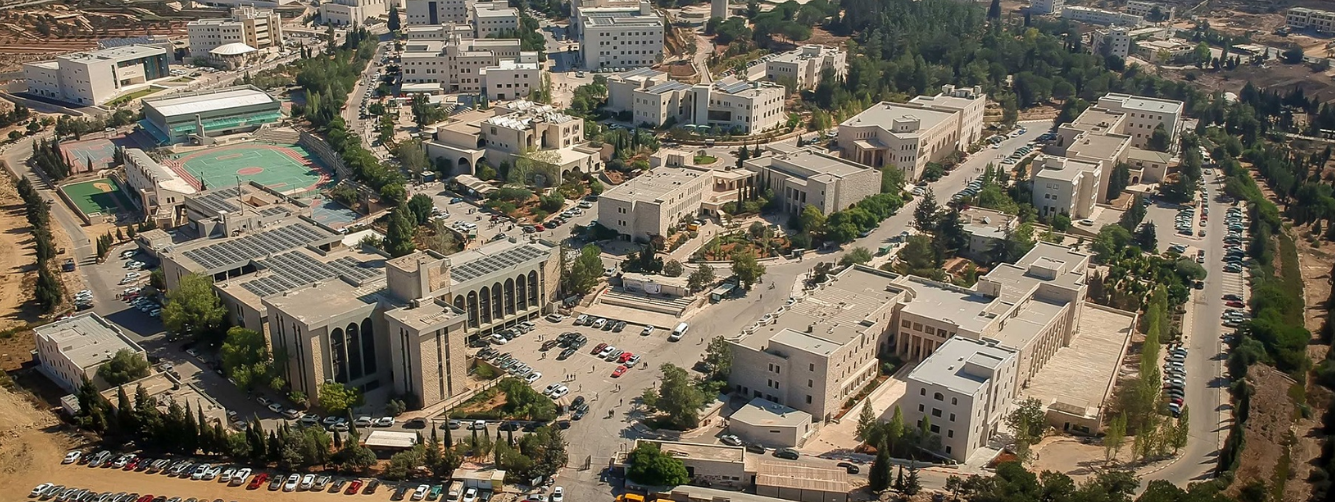
We, the undersigned national figures and civil society organizations, vehemently condemn the Israeli occupation forces’ criminal assault on Birzeit University on 10 January 2022. The Israeli forces raided - namely, the Birzeit University campus, firing live ammunition, injuring students, and abducting and detaining several of them. We hold the occupation authorities fully responsible for the safety of the incarcerated students and demand their immediate release.
This abhorrent crime requires immediate international intervention to provide protection for the Palestinan people as well as Palestinian academic and cultural institutions. It also requires that all Palestinians, individuals and organizations, to rally to the defense of Birzeit University, a distinguished national and academic institution. Birzeit University prides itself on its established and rich history of political and intellectual diversity and inclusion, while practicing and defending participatory democracy, making it a cornerstone in Palestinian resilience as well as the resistance to the occupation. In this context, we call for focusing our collective efforts and energies on confronting the Israeli aggression and denying the occupier the opportunity to undermine and weaken our institutions or meddle in our internal affairs.
We also urge for continued internal dialogue within the university and in a manner that guarantees the resolution of any internal disputes and allows for the prompt resumption of academic life on campus.
- Hanan Ashrawi
- Azmi Al-Shuaibi
- Mamdouh Al-Aker
- Hani Al-Masri
- Abdelqader Al-Husseini
- Shawan Jabarin
- Ammar Dweik
- Issam Arouri
- Majida Al-Masri
- Mohamed Al-Aboushi
- Muhram Al-Barghouthi
- Sami Khader
- Mahmoud Al-Ifranji
- Abdallah Jarrar
- Ubai Aboudi
- Tahrir Al-Araj
- Abdelfattah Abu Surour
- Amjad Al-Shawa
- Hilmi Al-Araj
- Sanaa Shubeita
- Mohamad Salameh
- Khaled Kuzmar
- Fadwa Al-Husseini
- Munjed Abu Jeish
- Fuad Abu Seif
- Mohamad Al-Hasasneh
- Sahar Francis
- Issam Younis
- Alaa Skafi
- Lily Feidy
- Honaisa Ghanem
- Palestinian NGO Network
- Palestinian Human Rights Organizations Council
14 Emil Touma Street,
Al Massayef, Ramallah
Postalcode P6058131
P.O.Box 69647
Jerusalem
972-2-298 9490/1
972-2-298 9492
info@miftah.org




